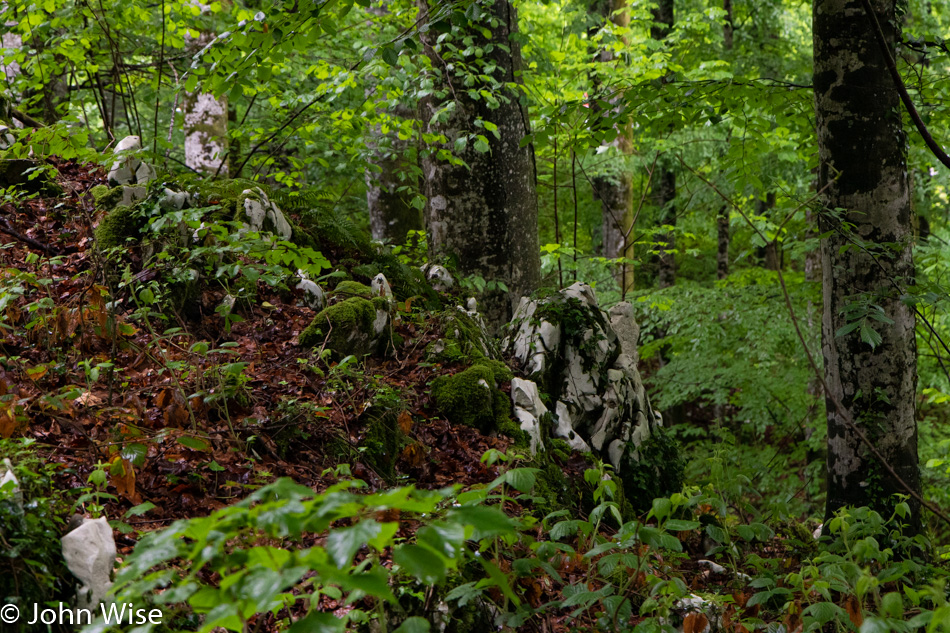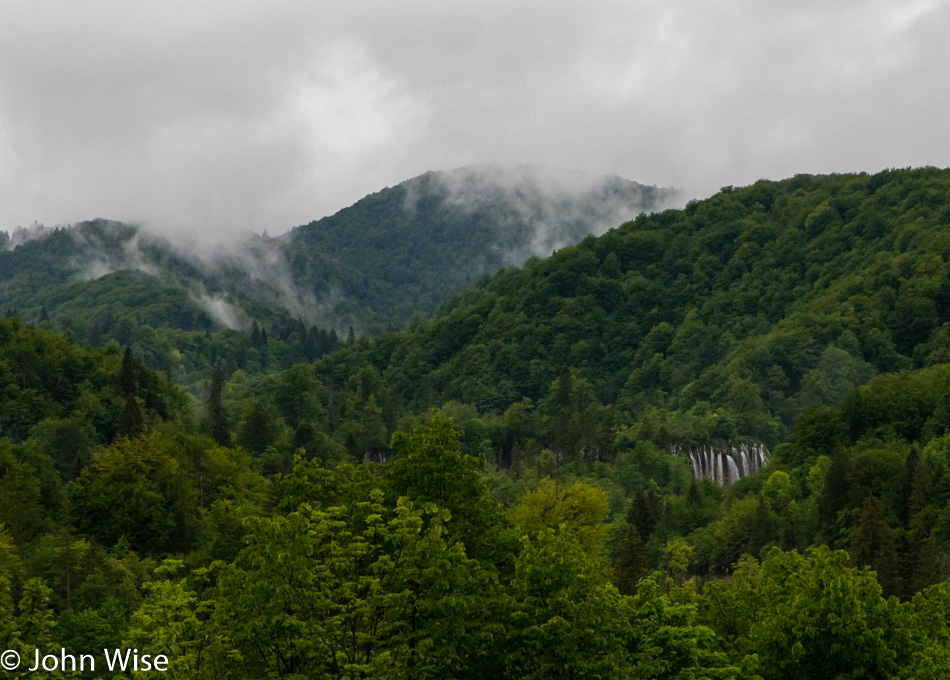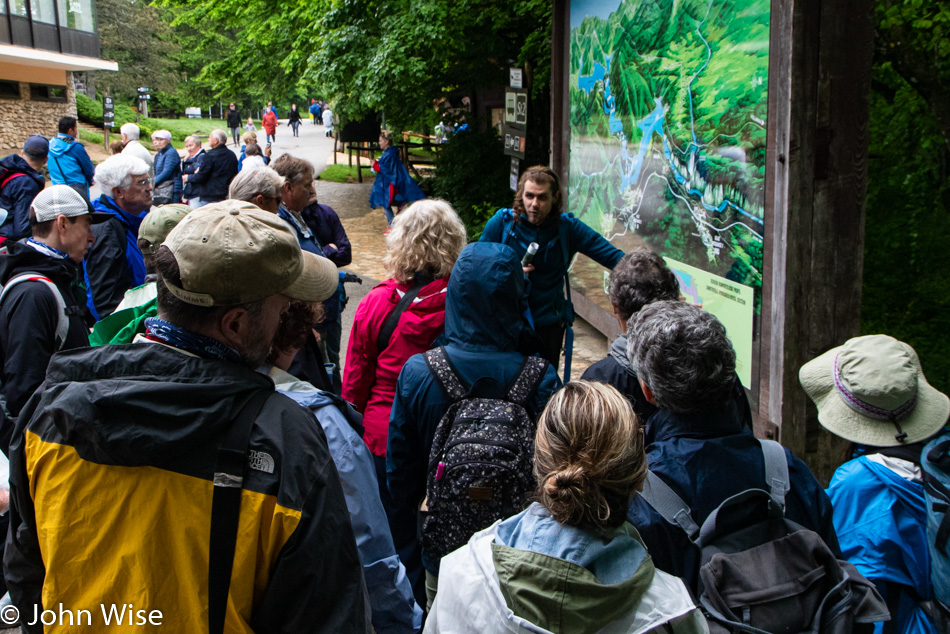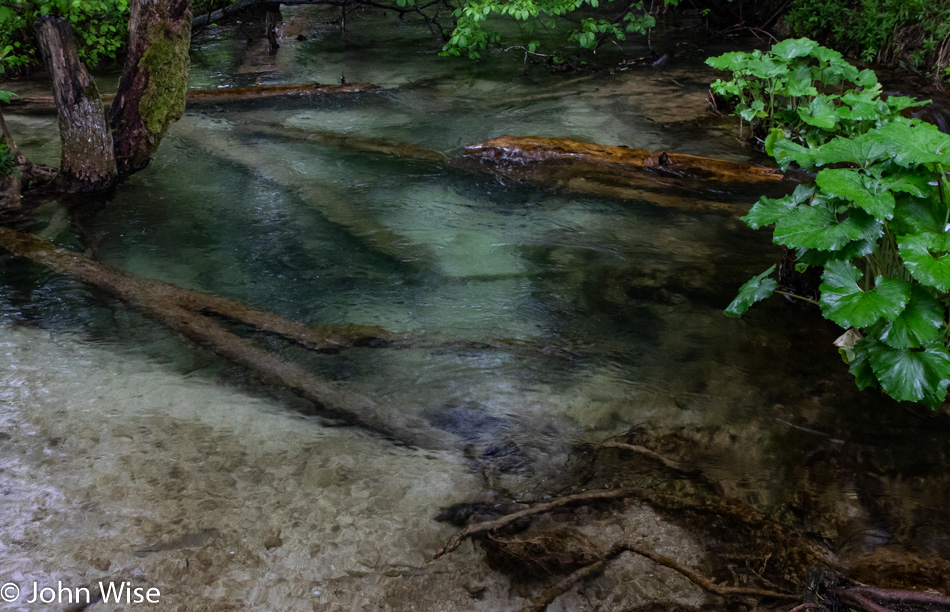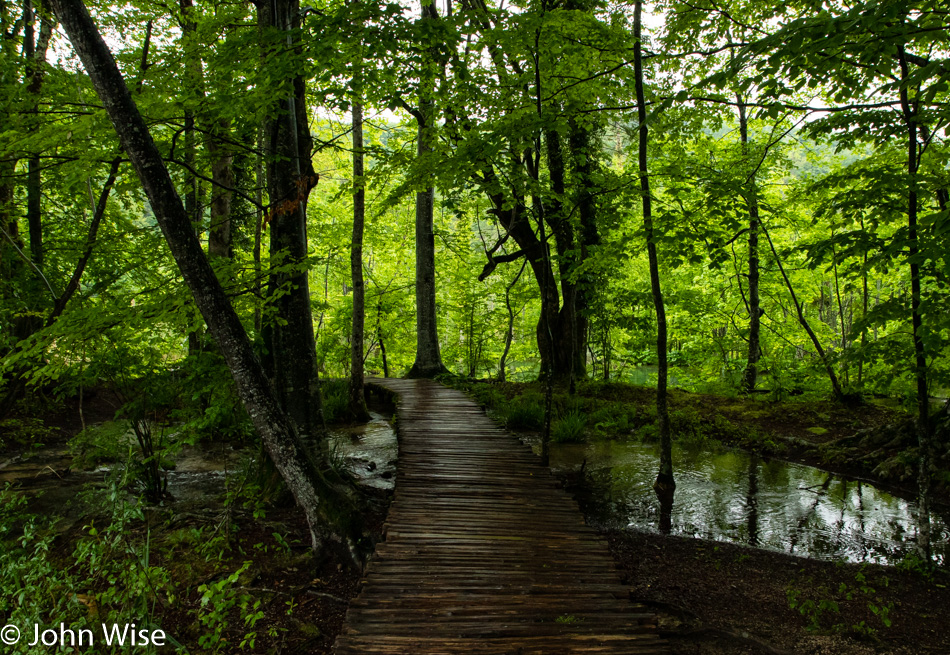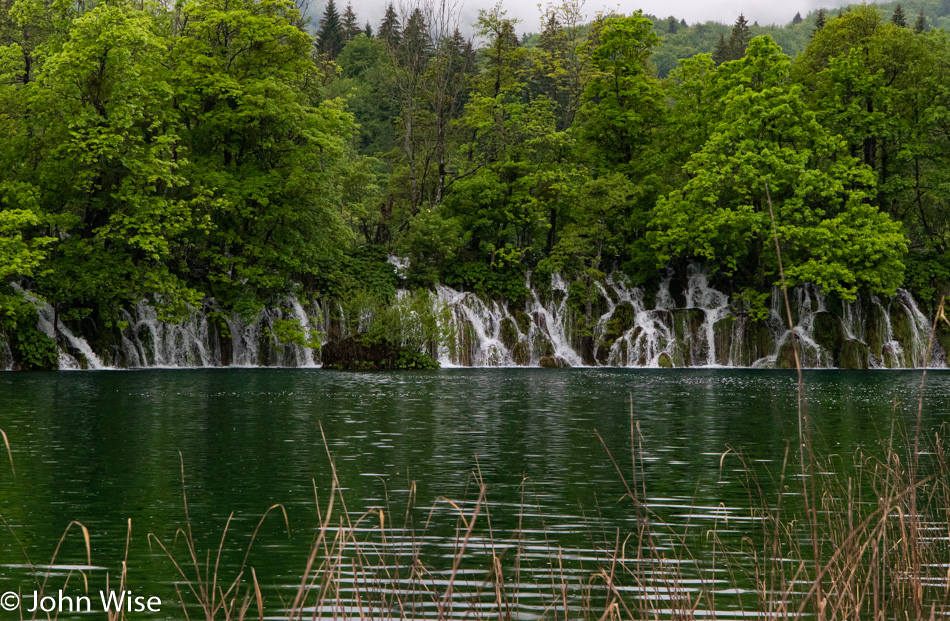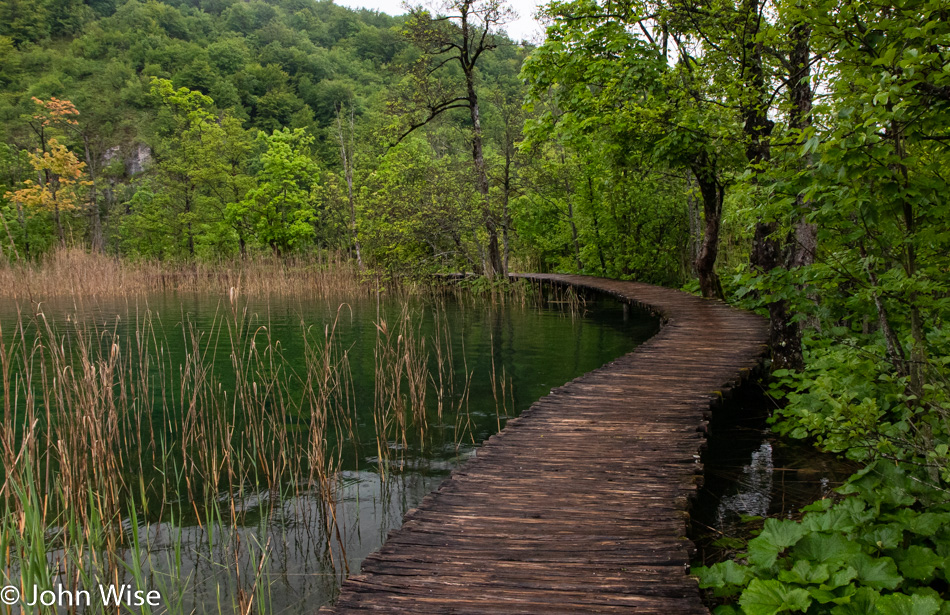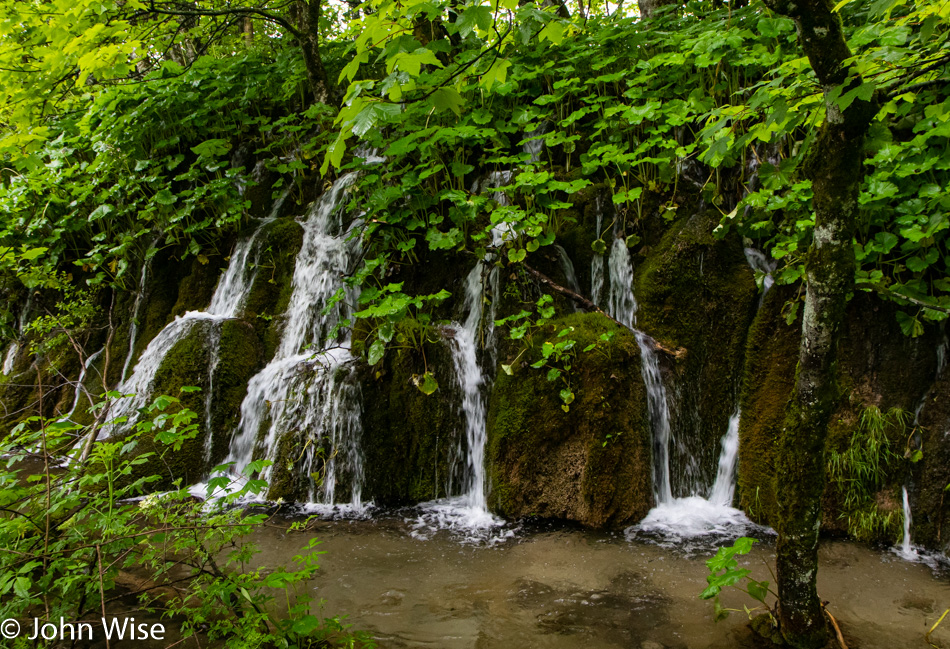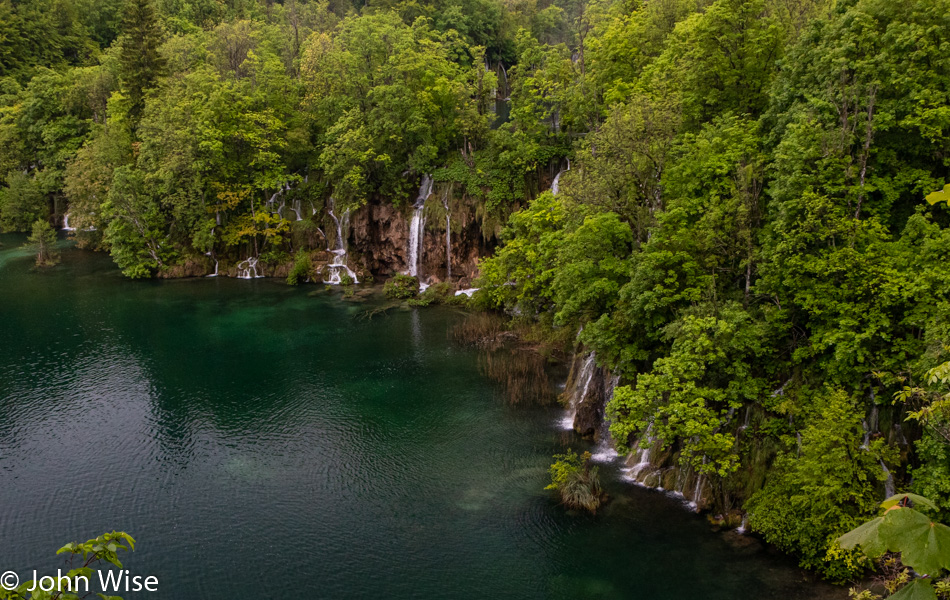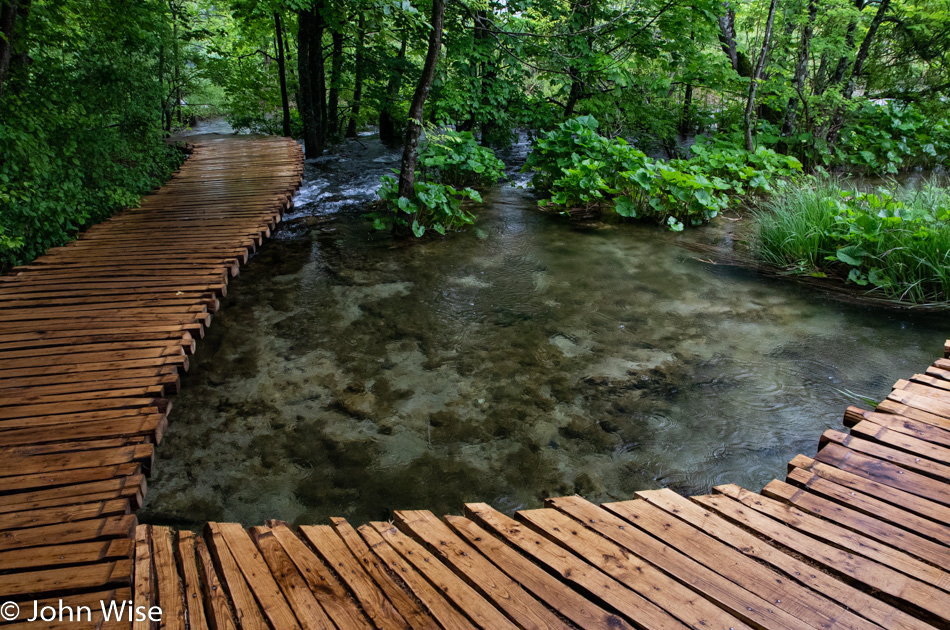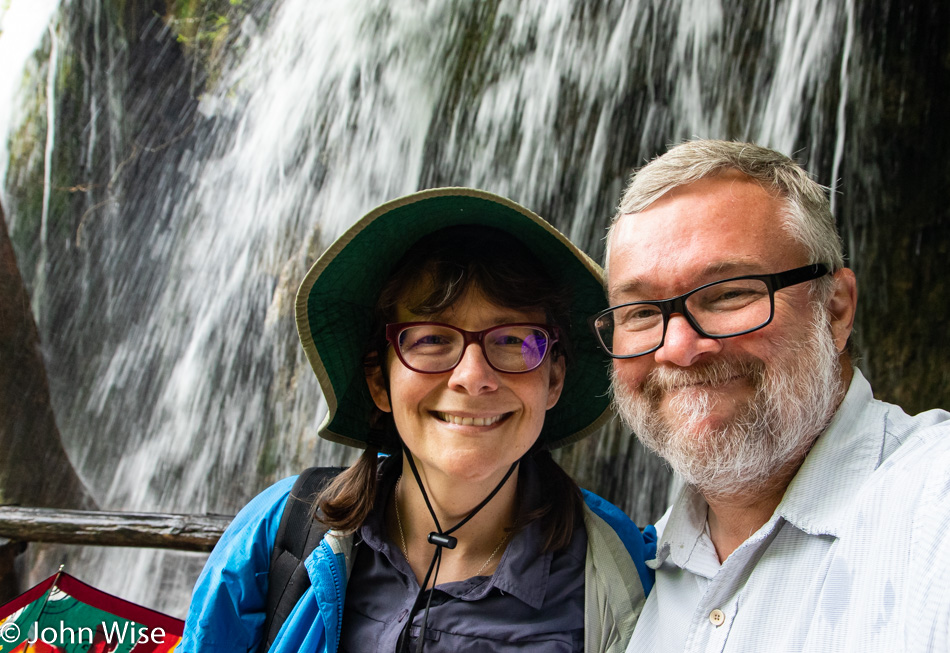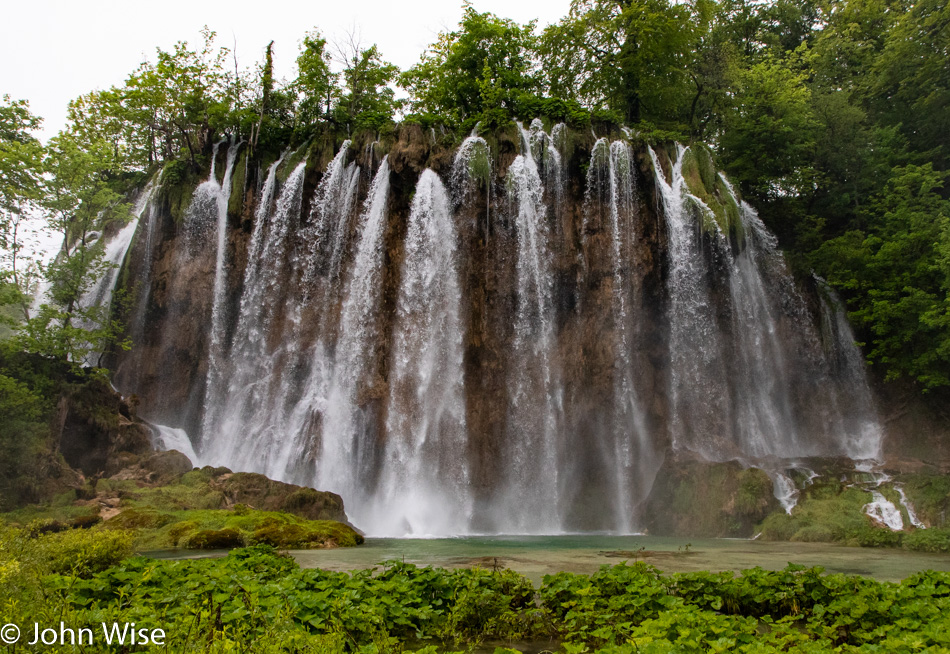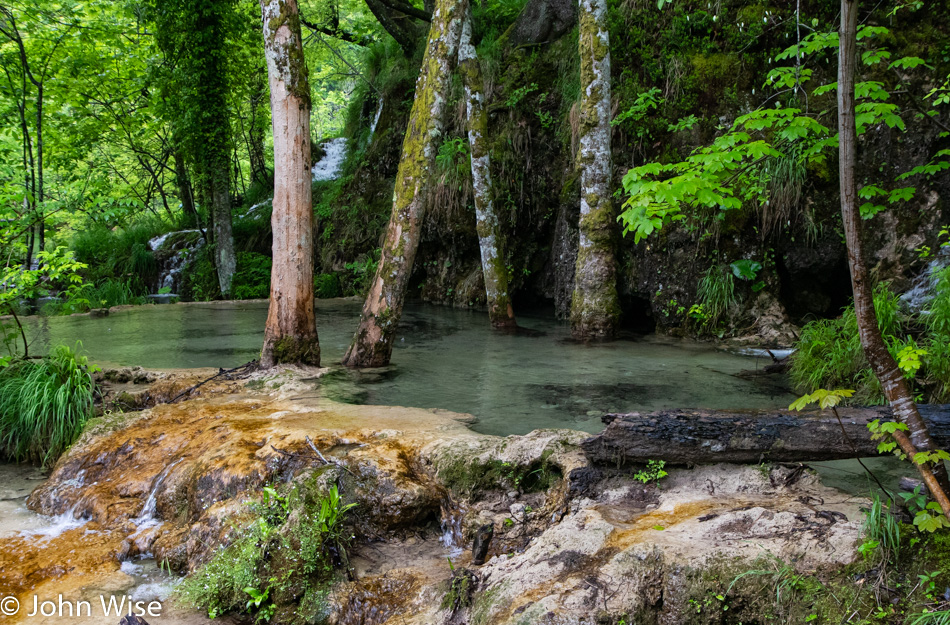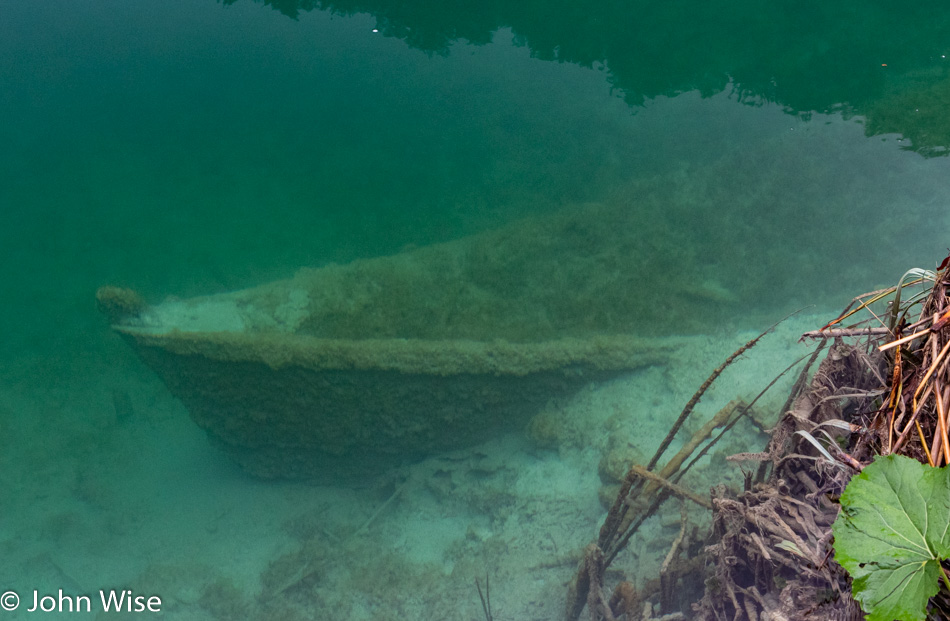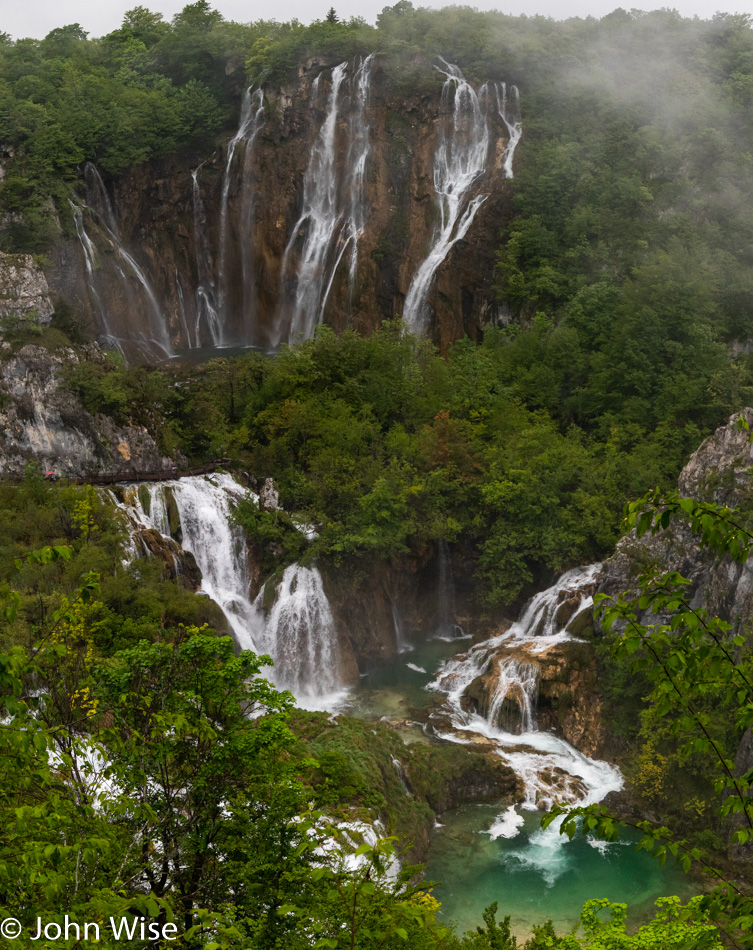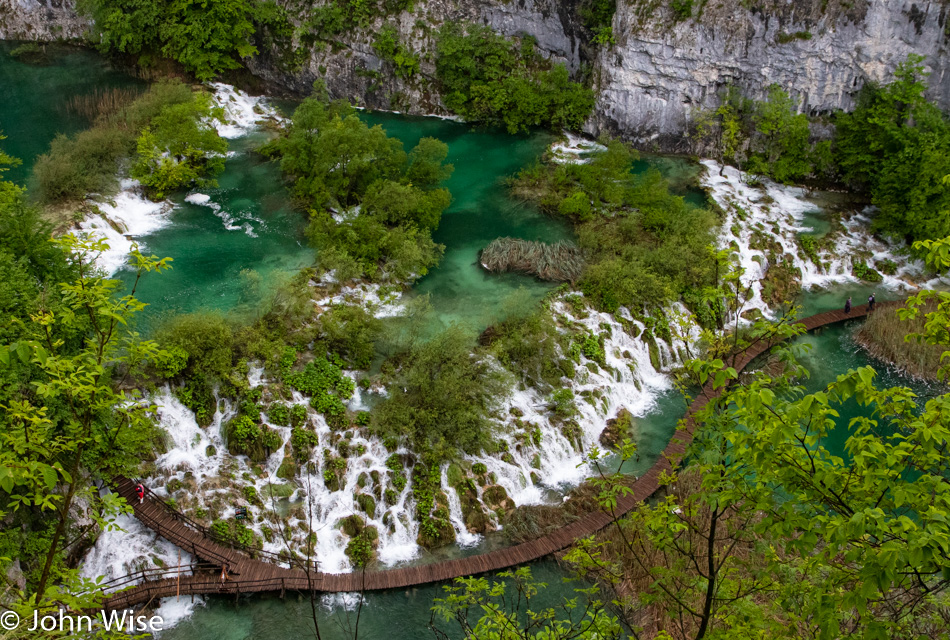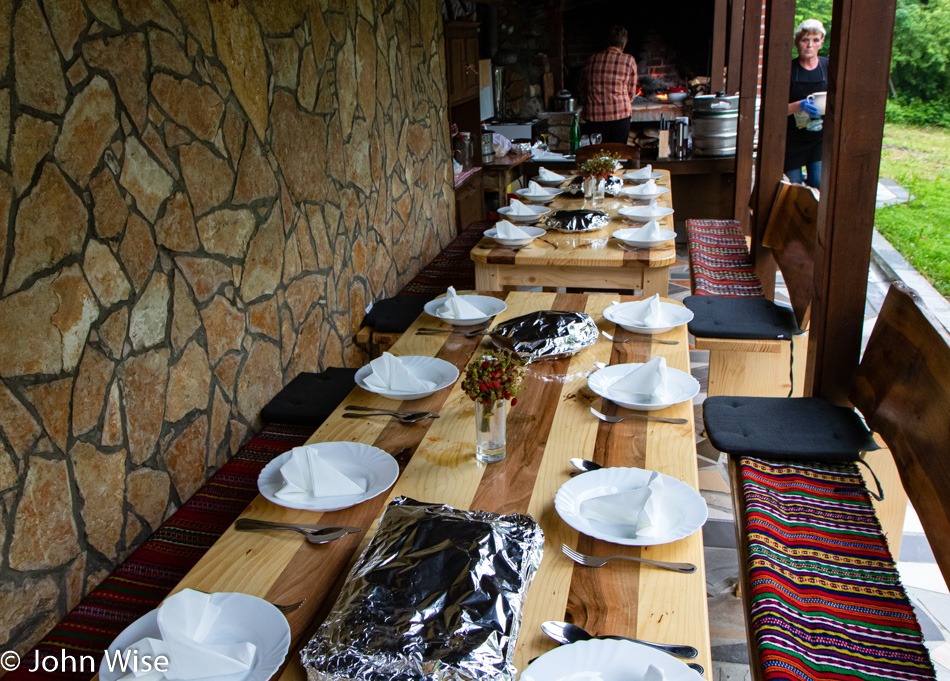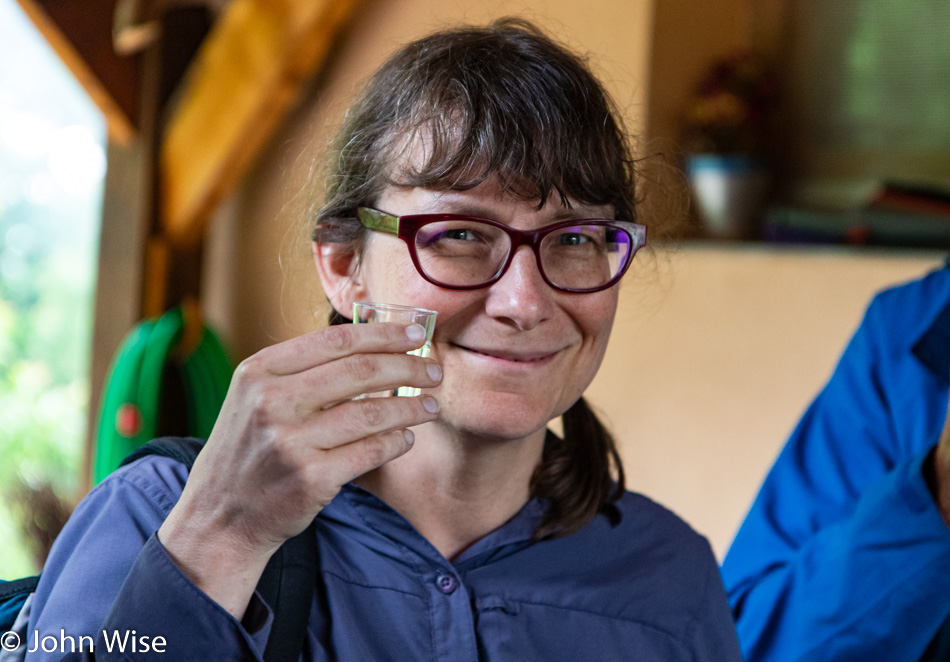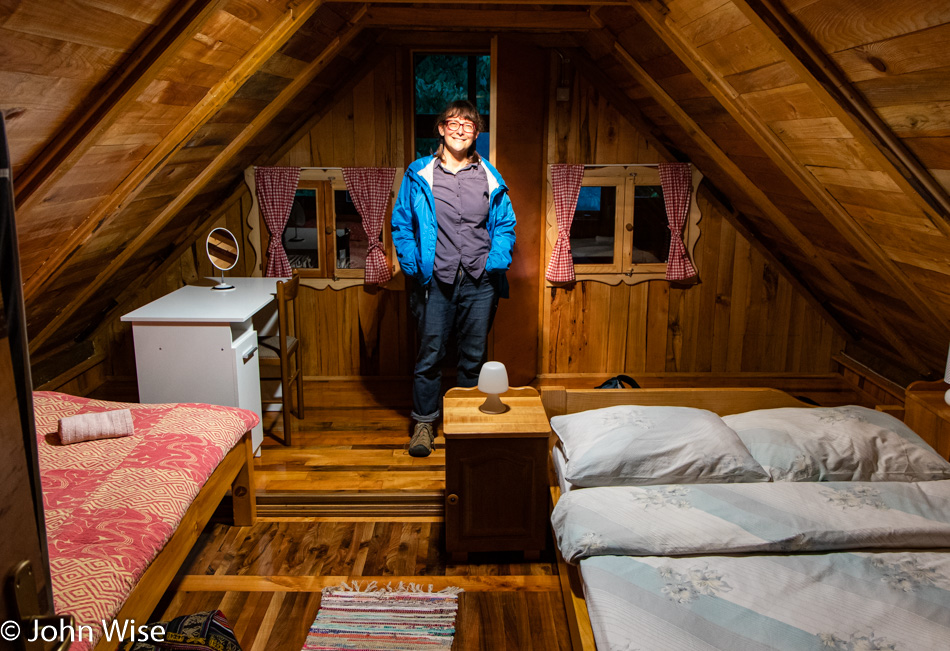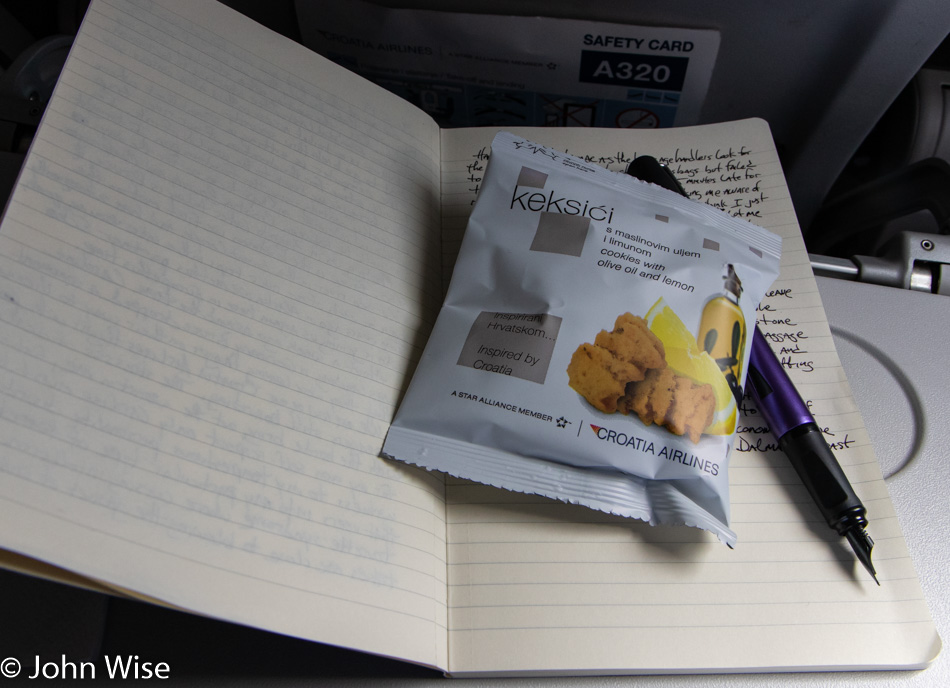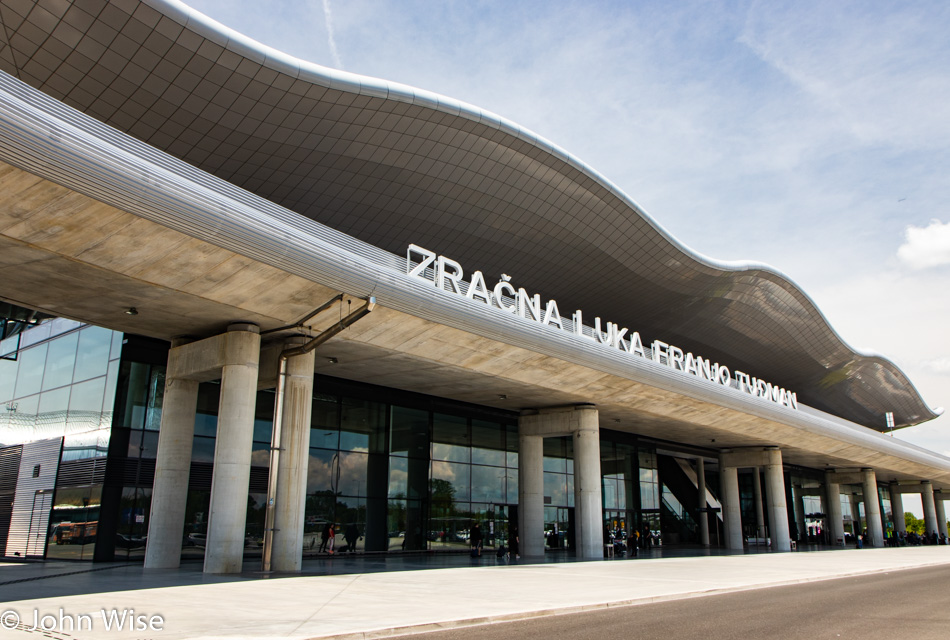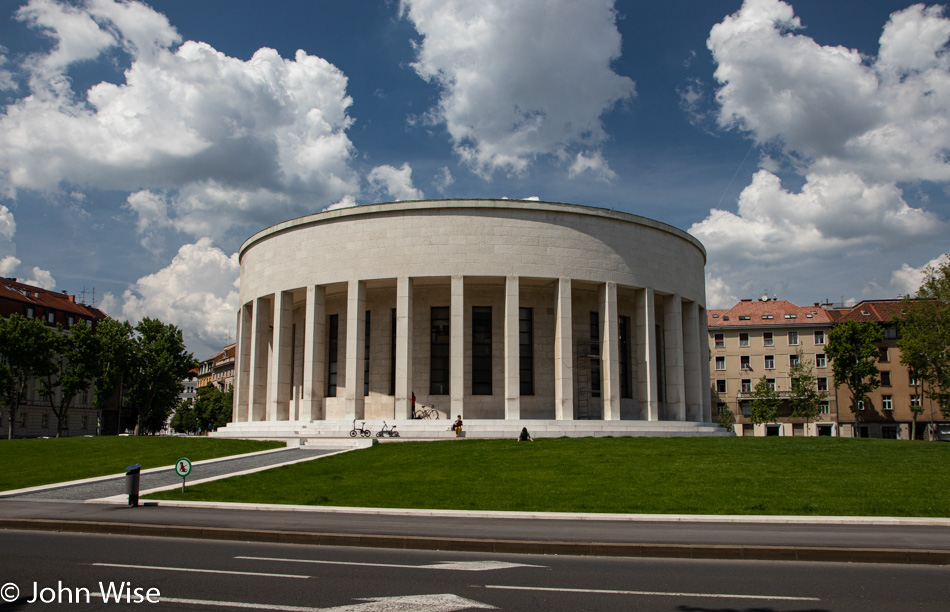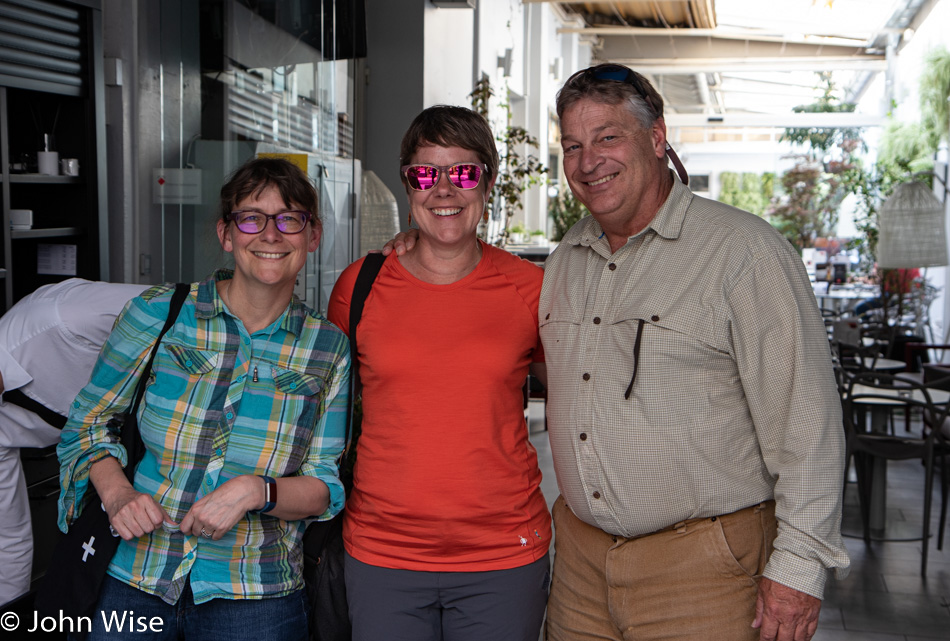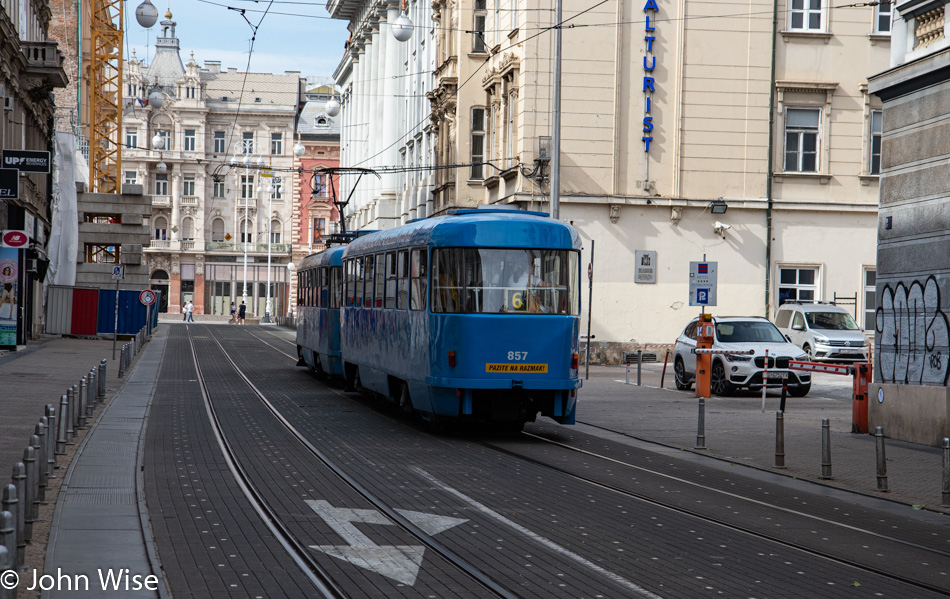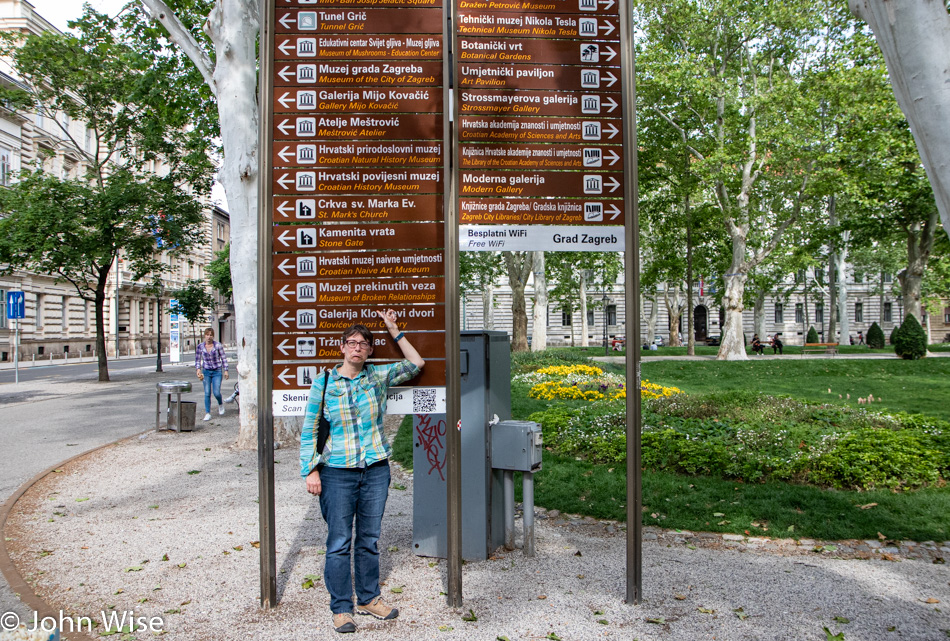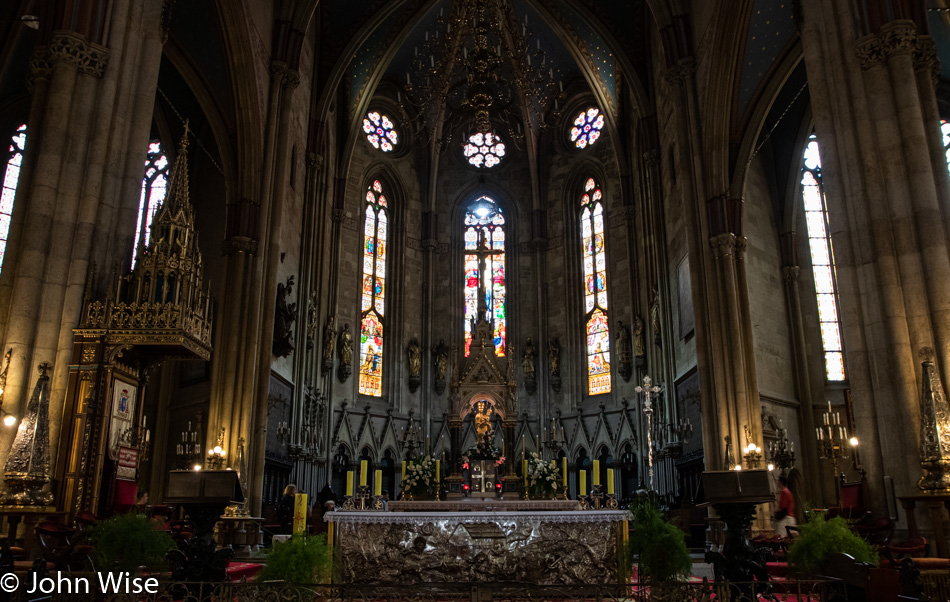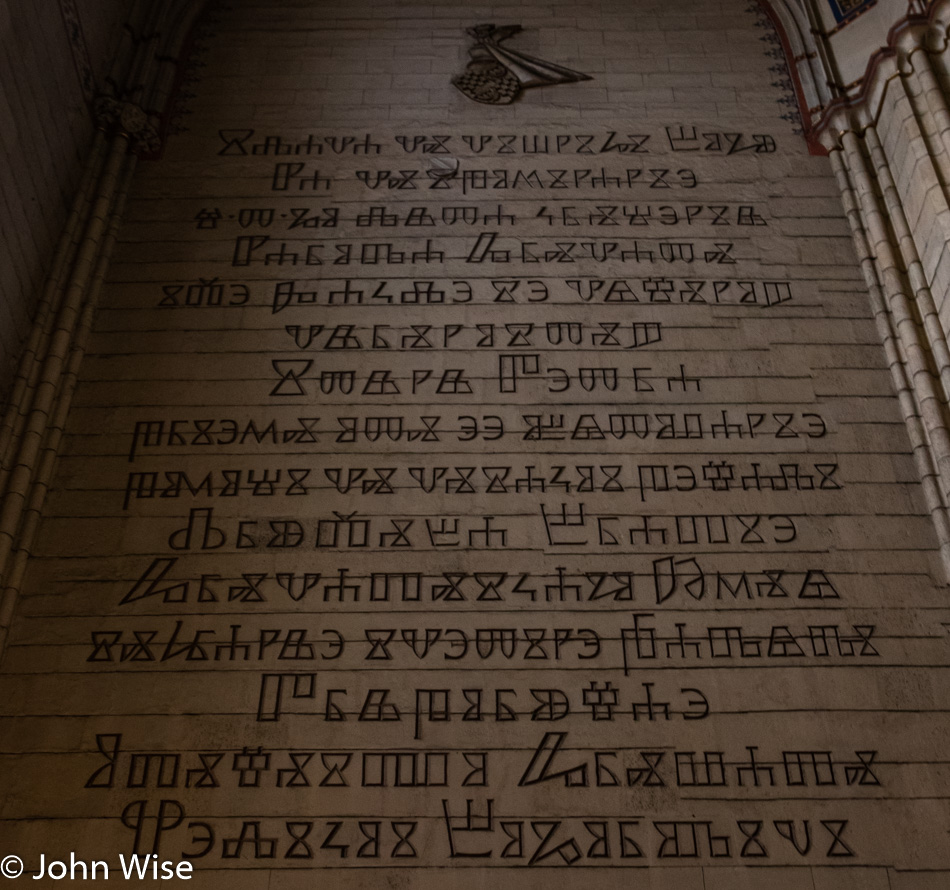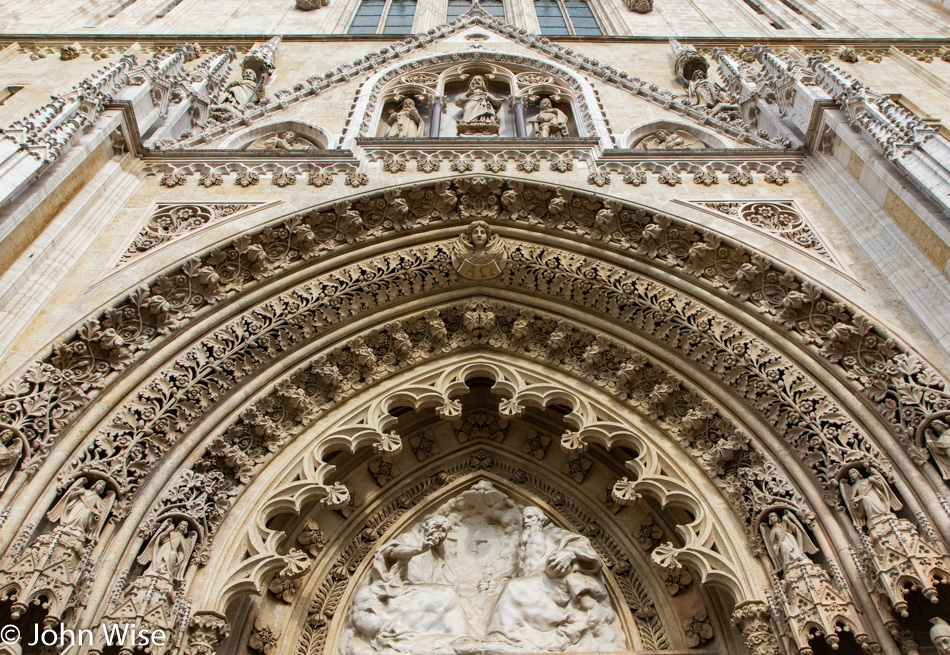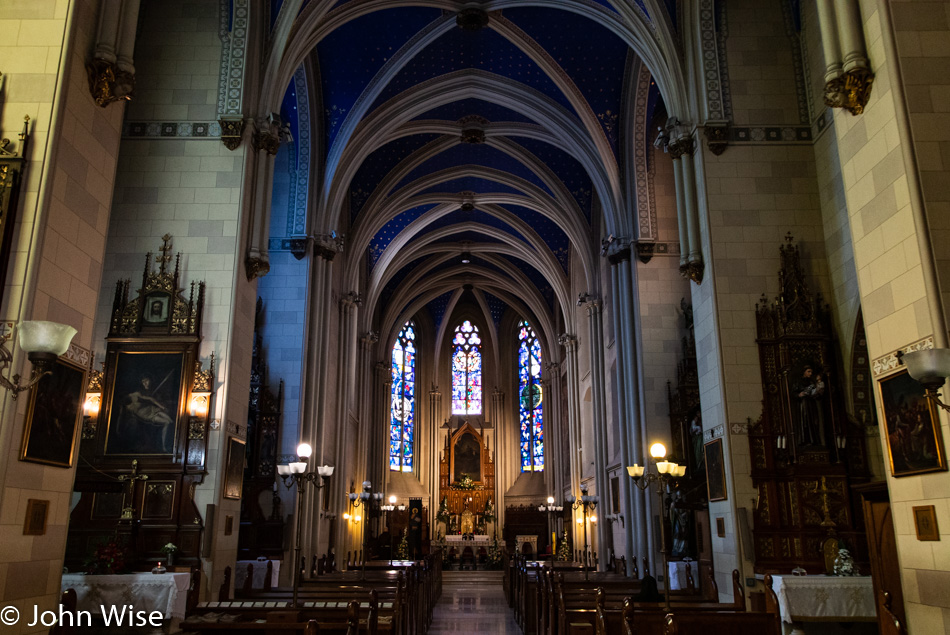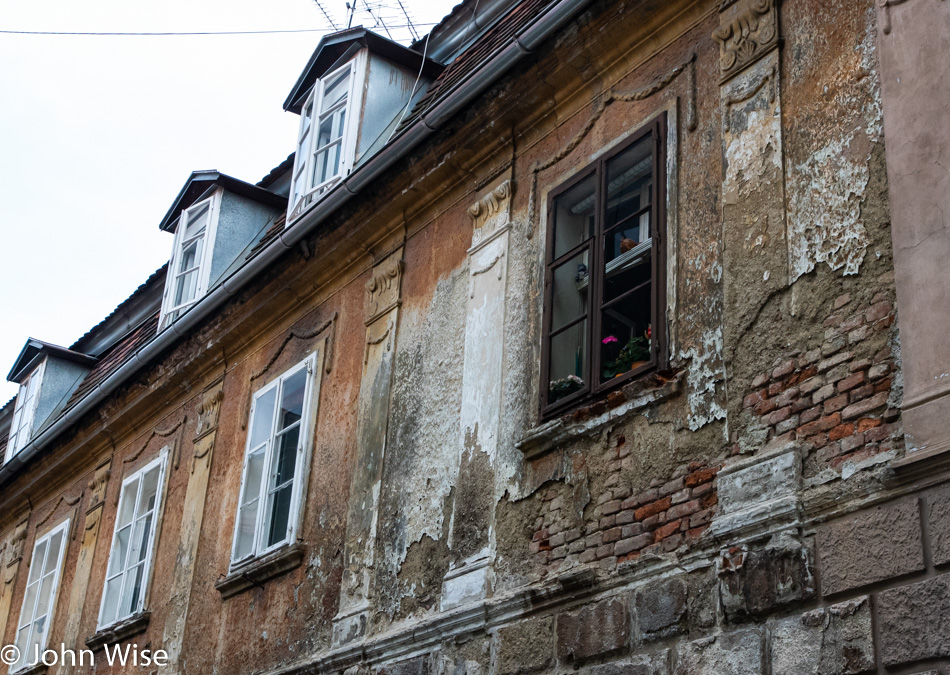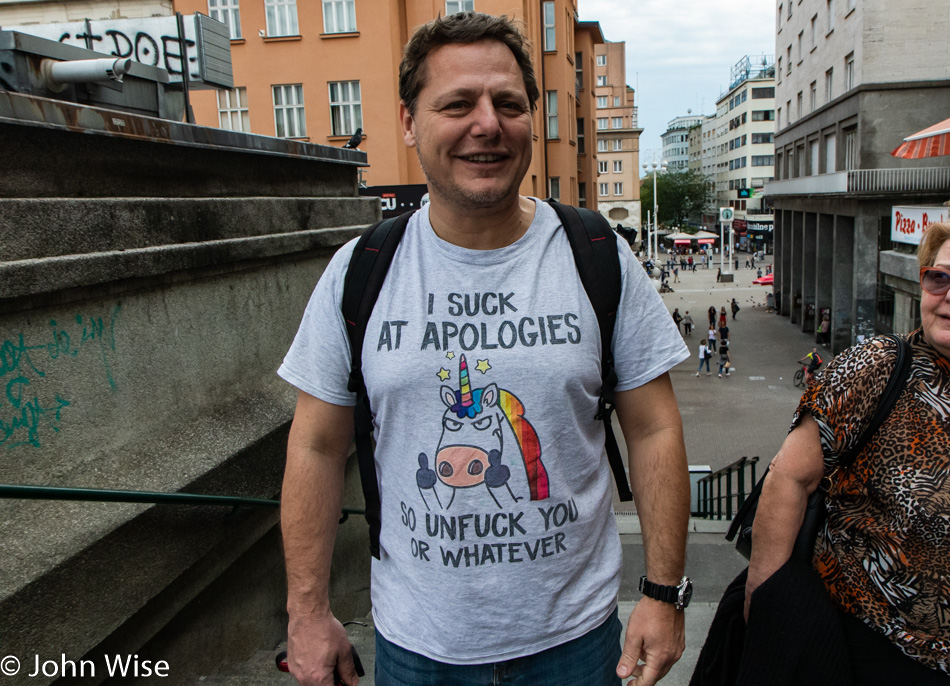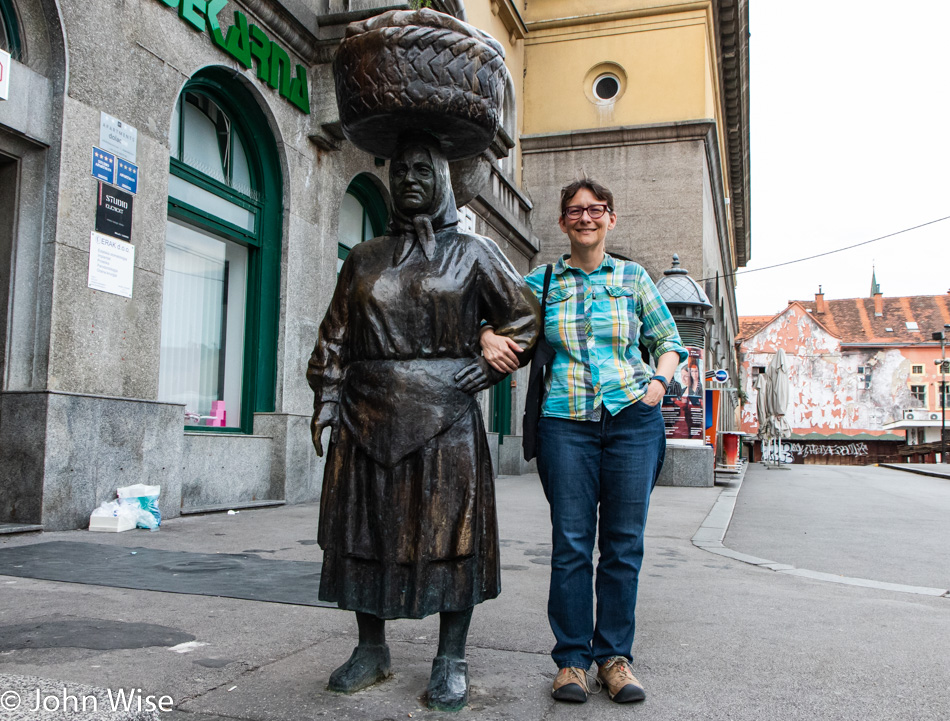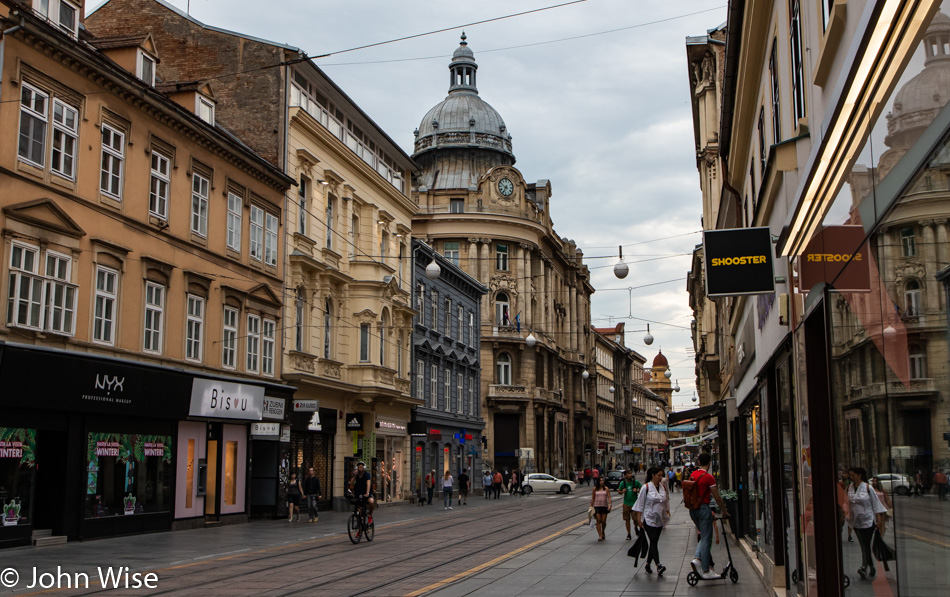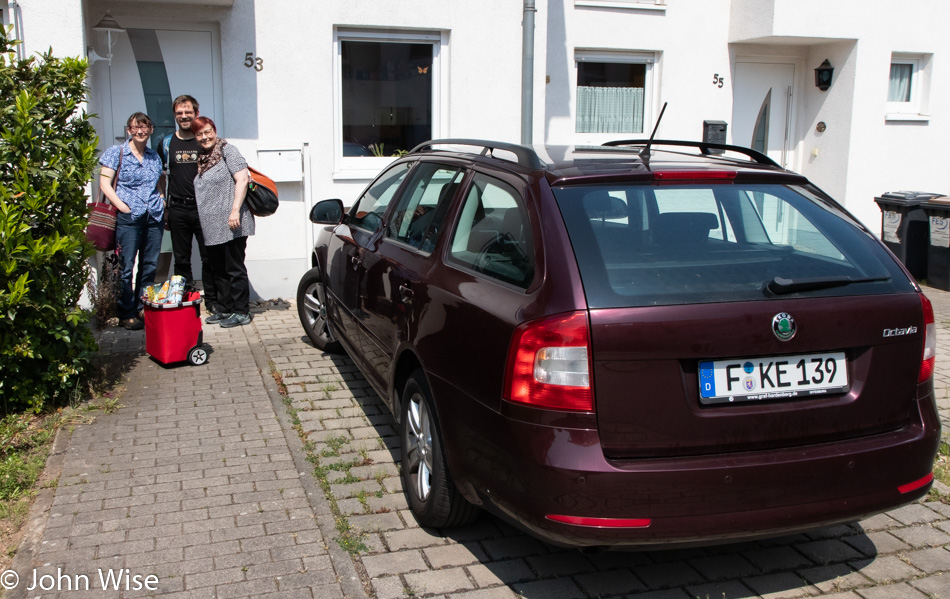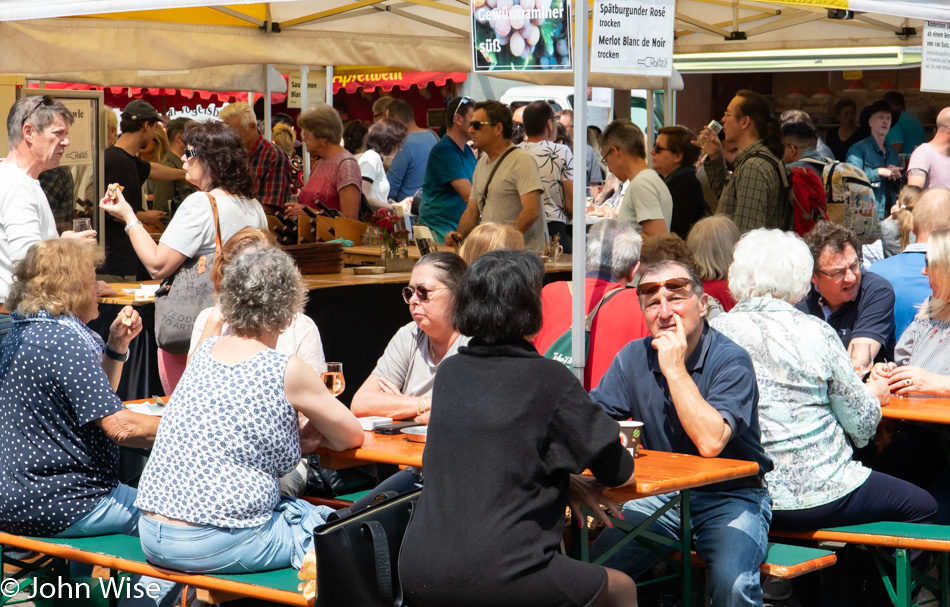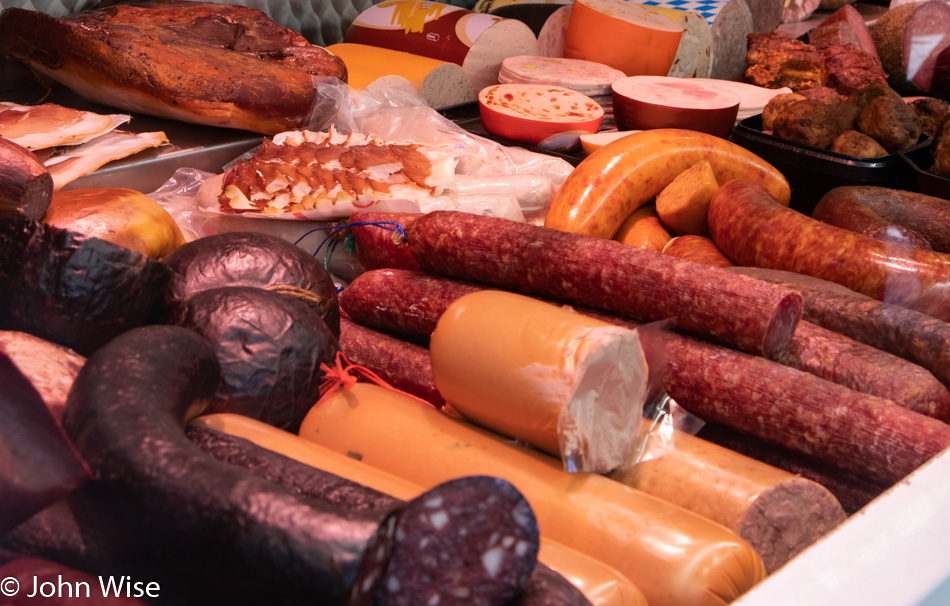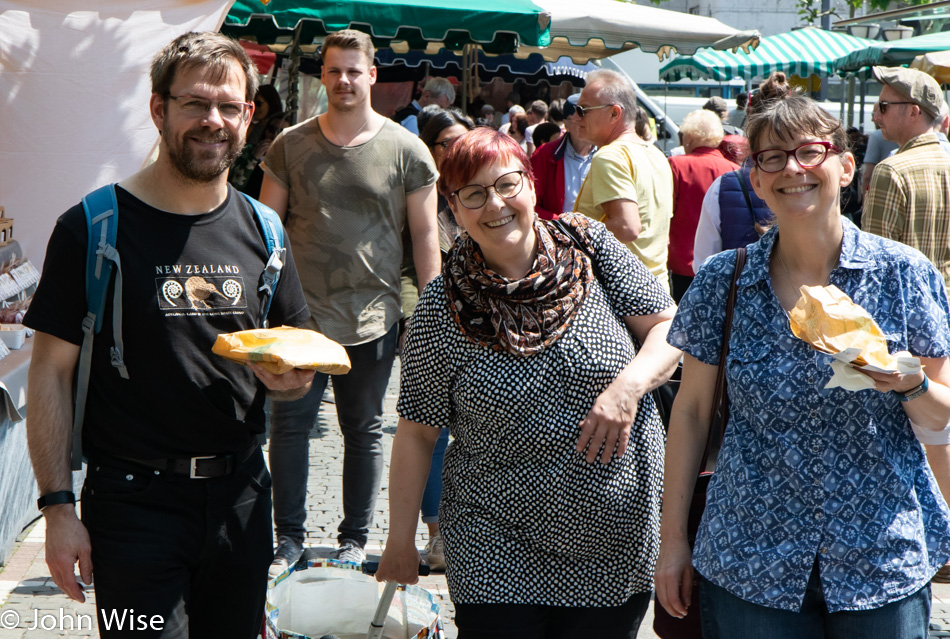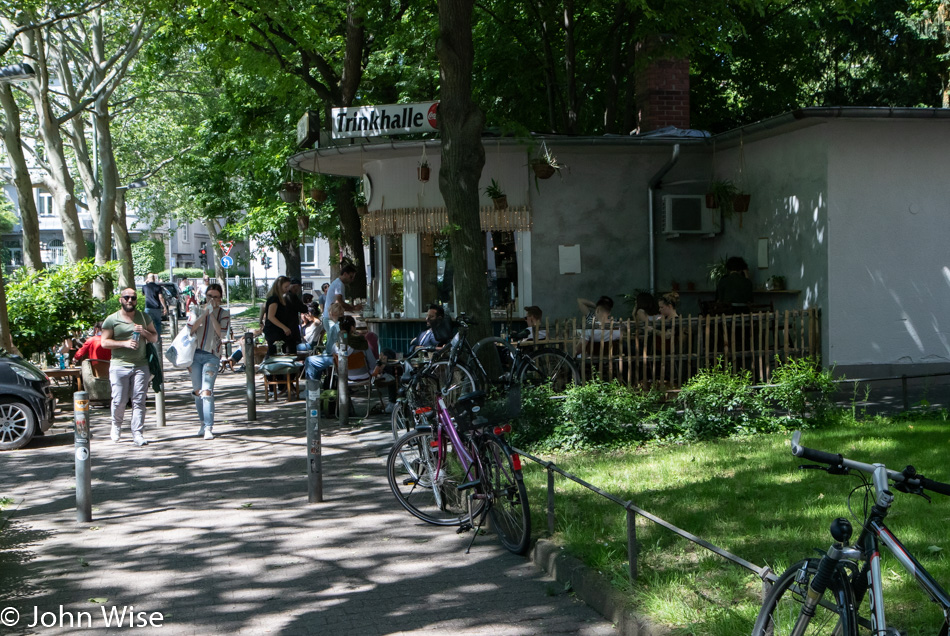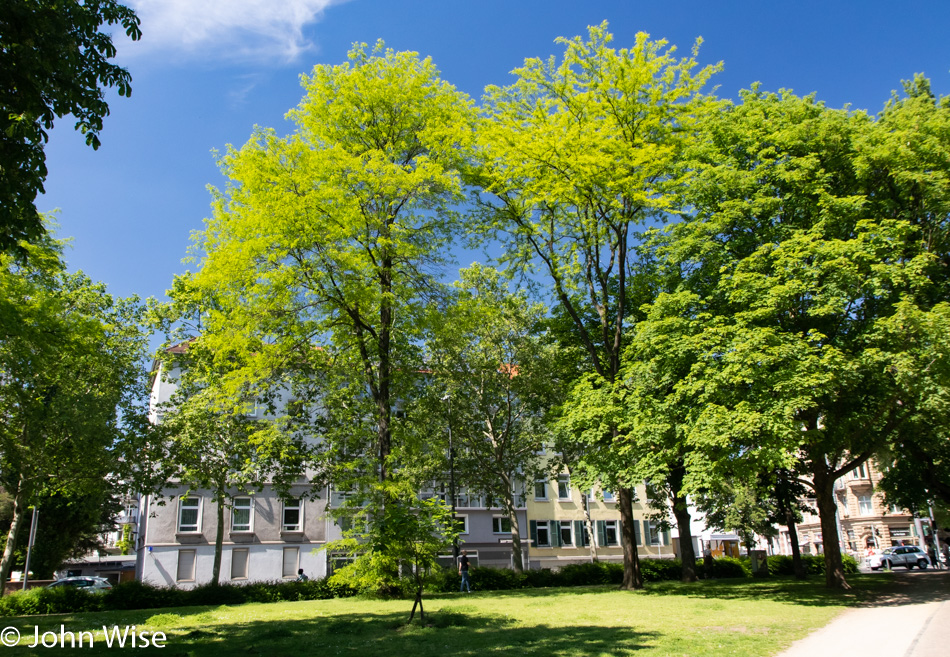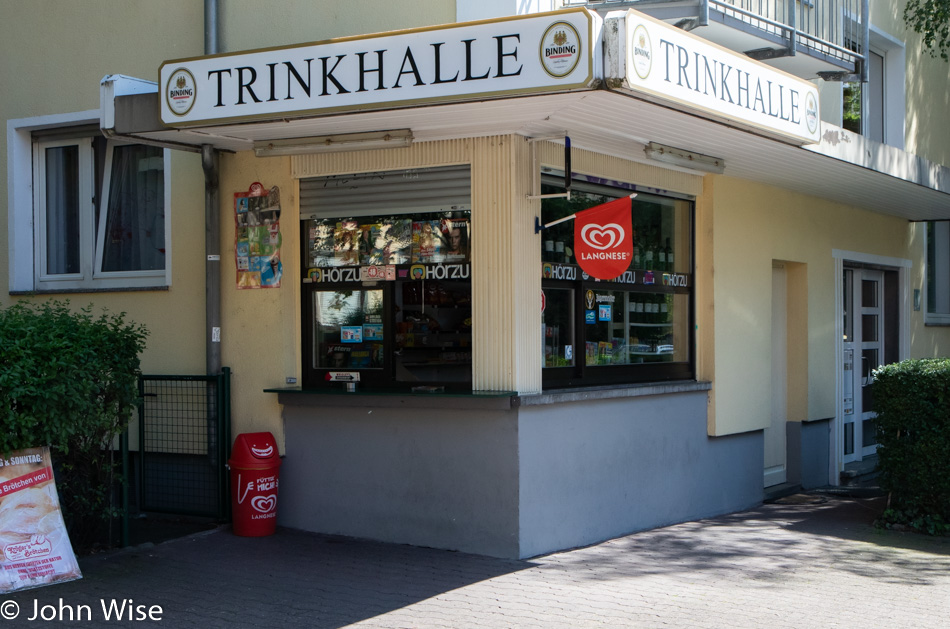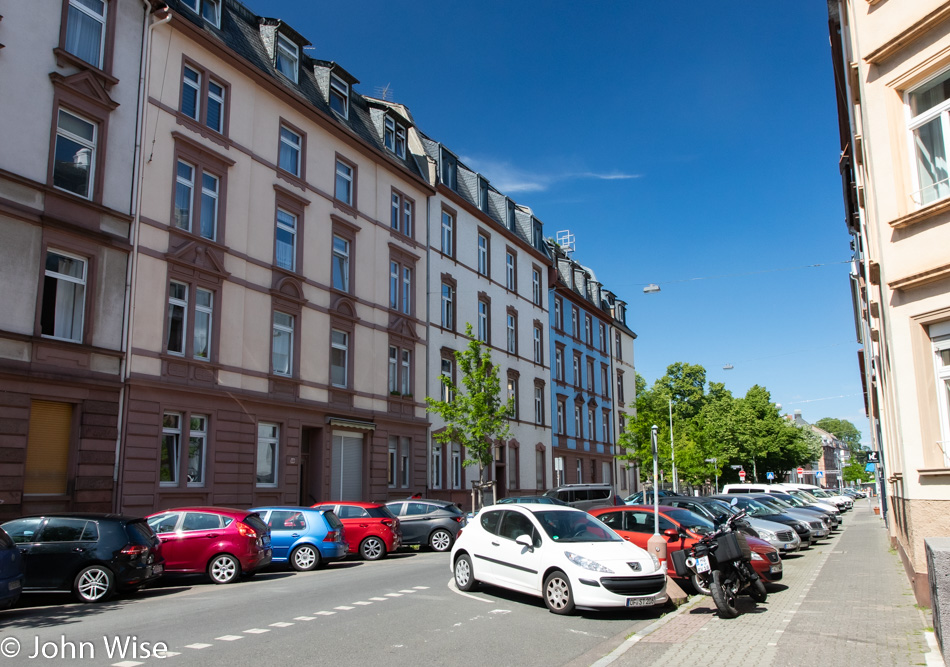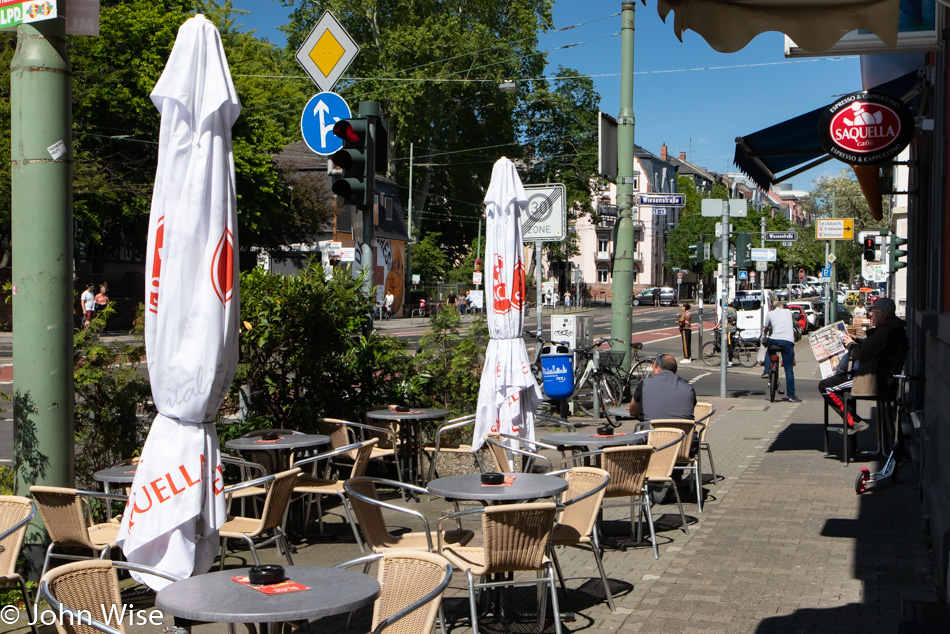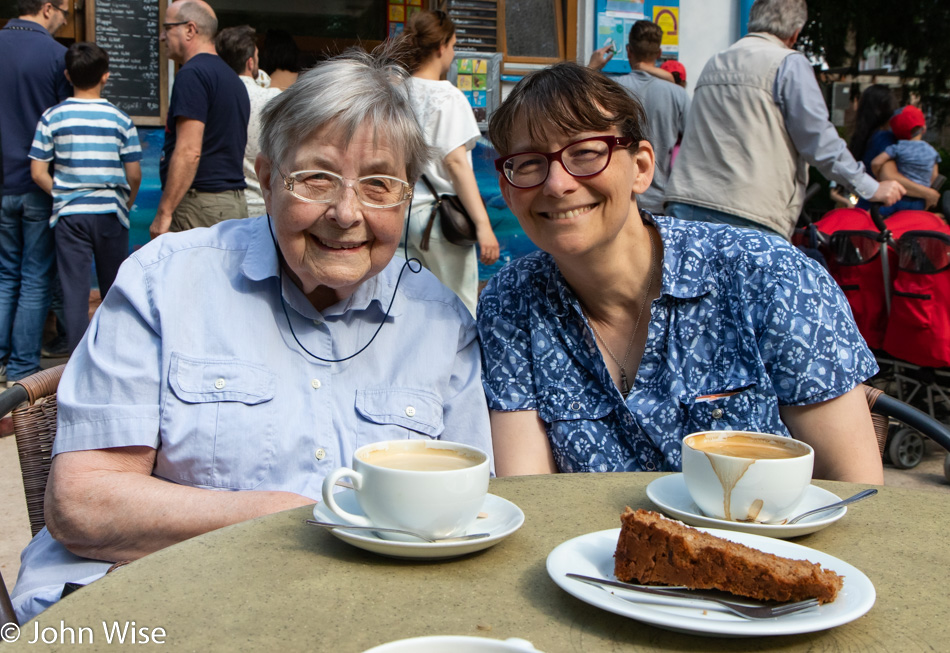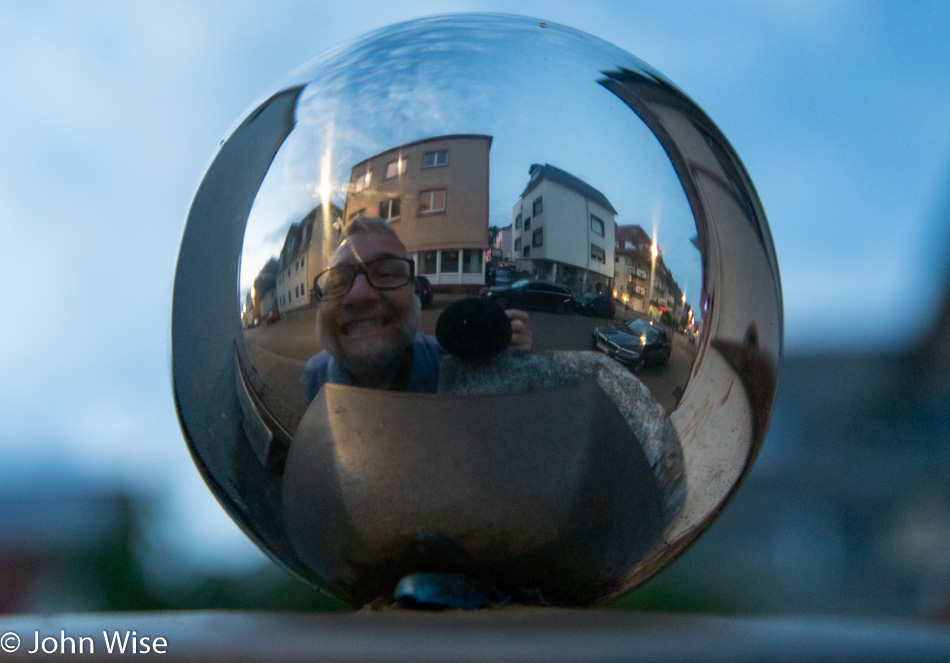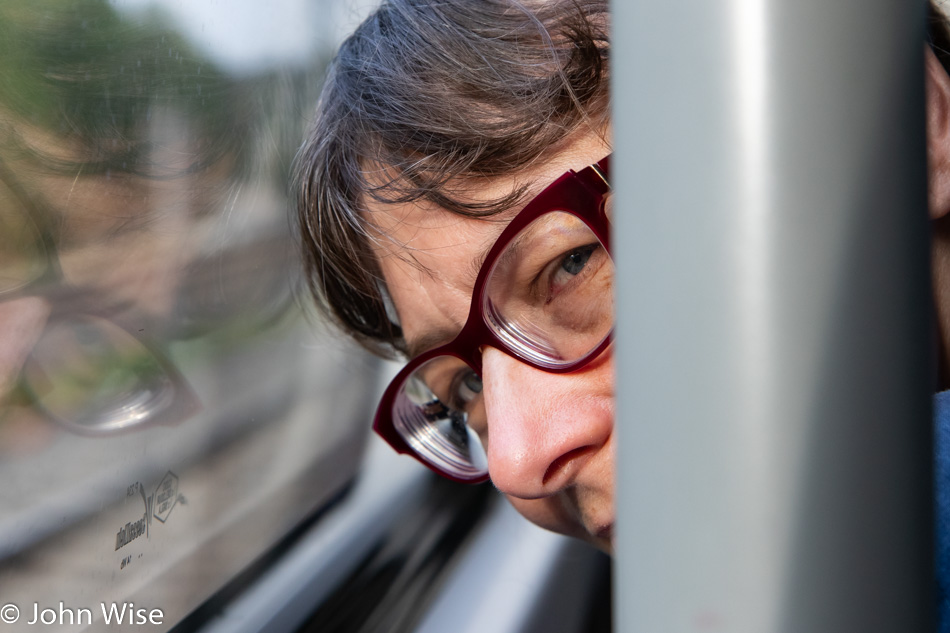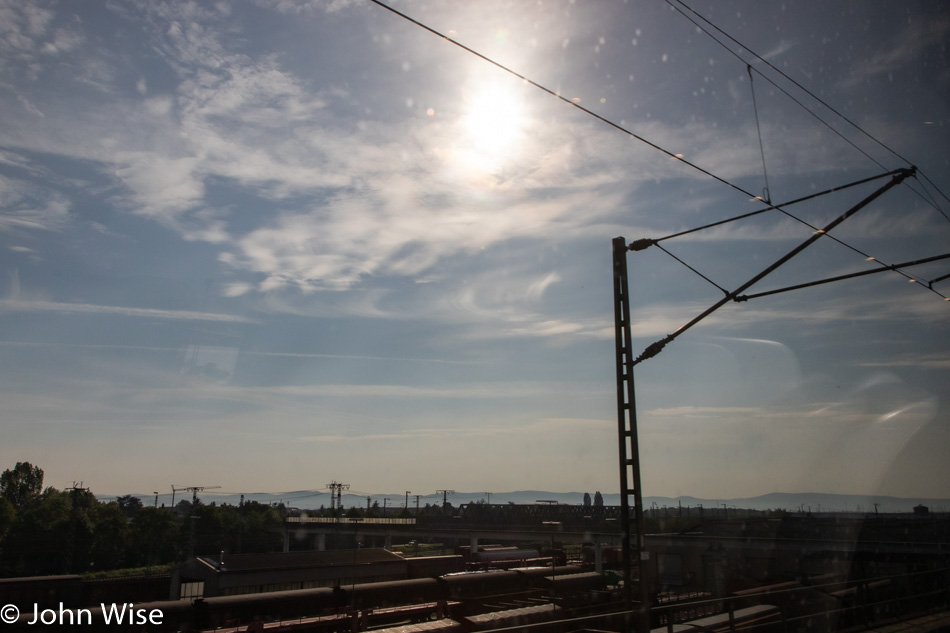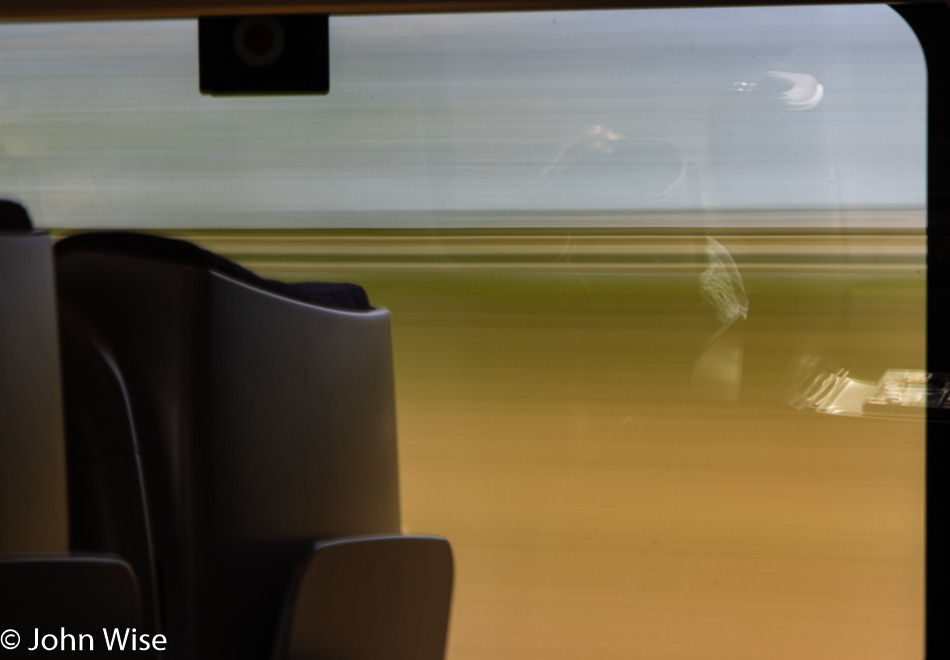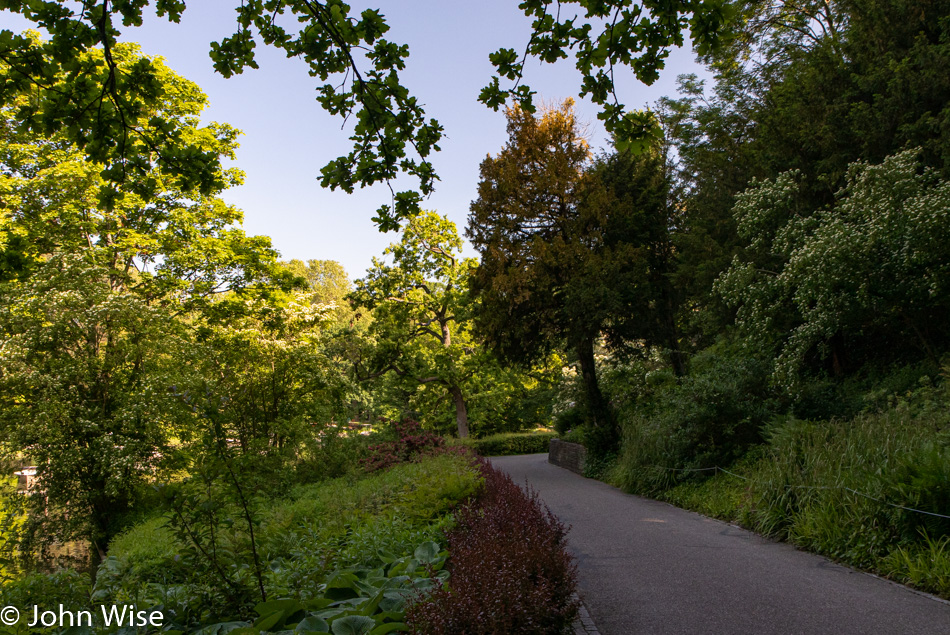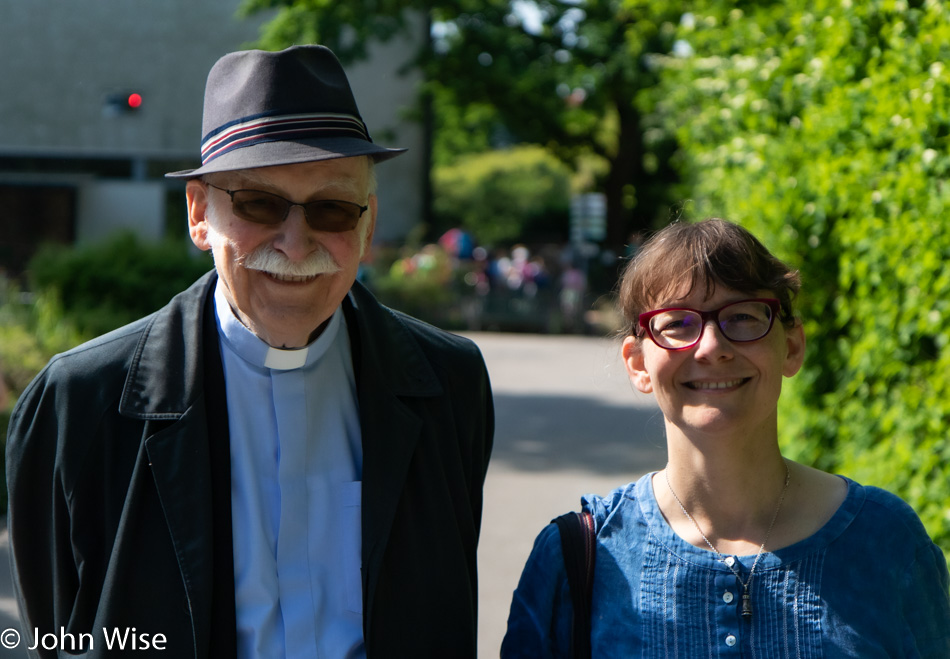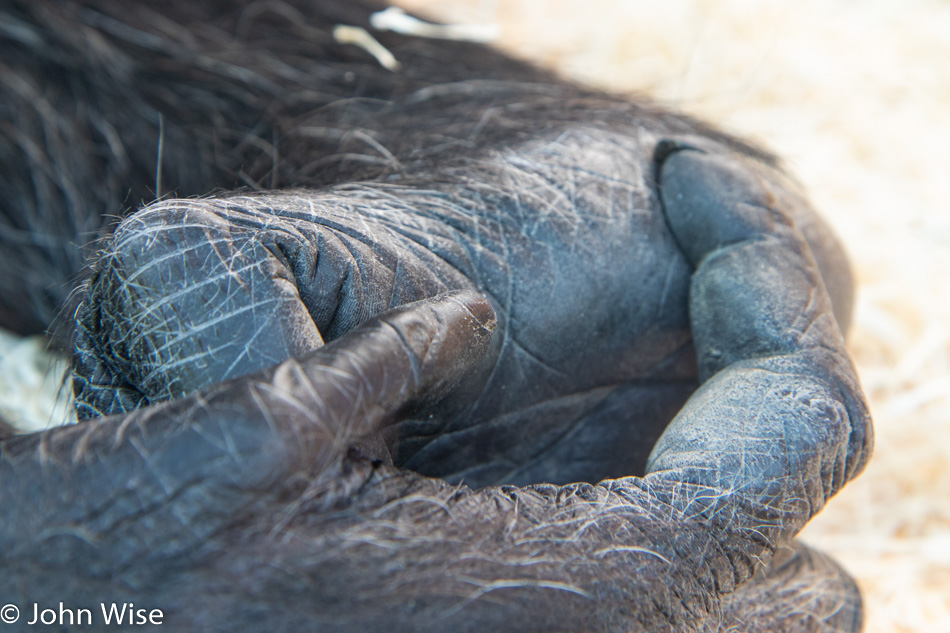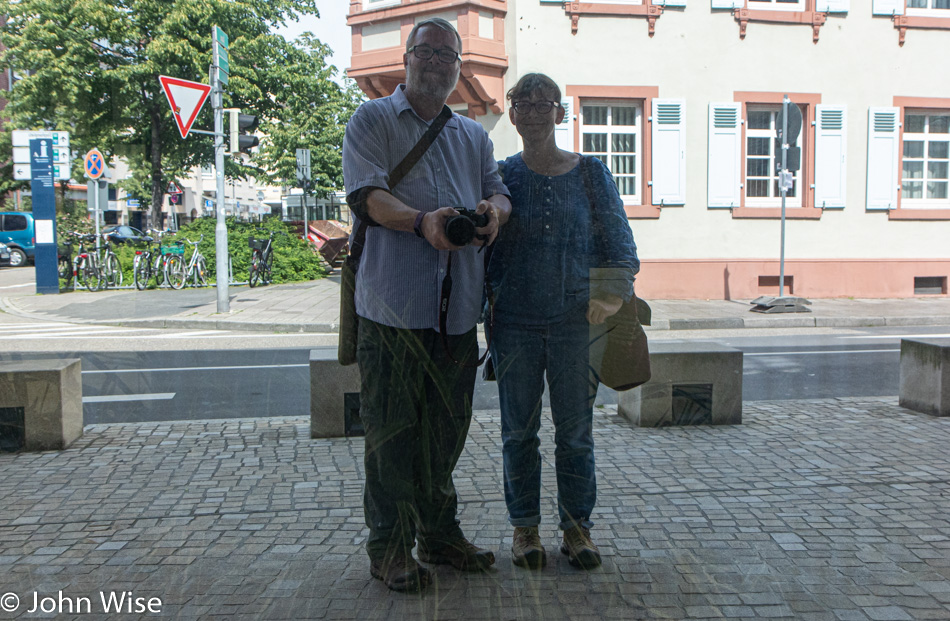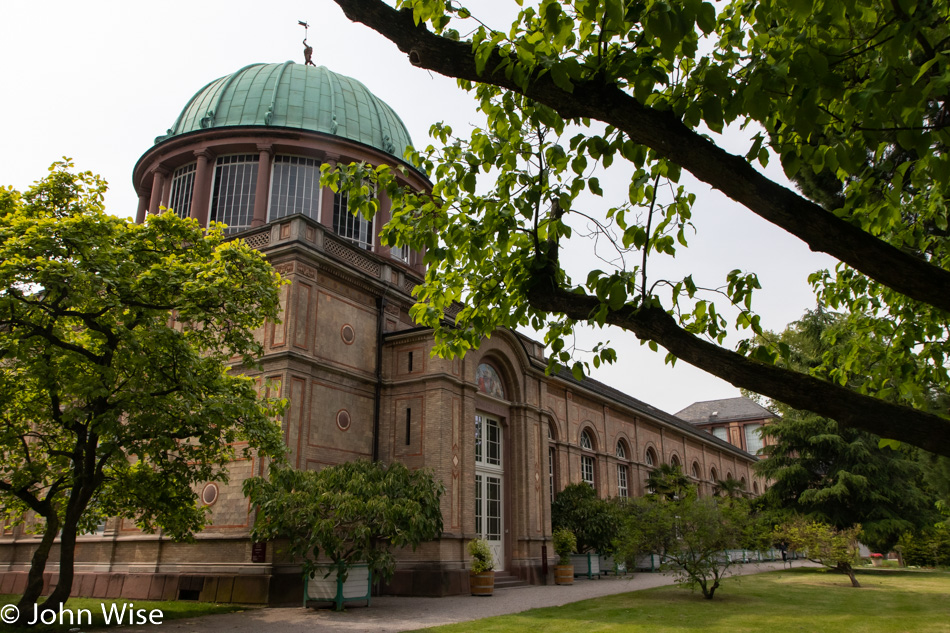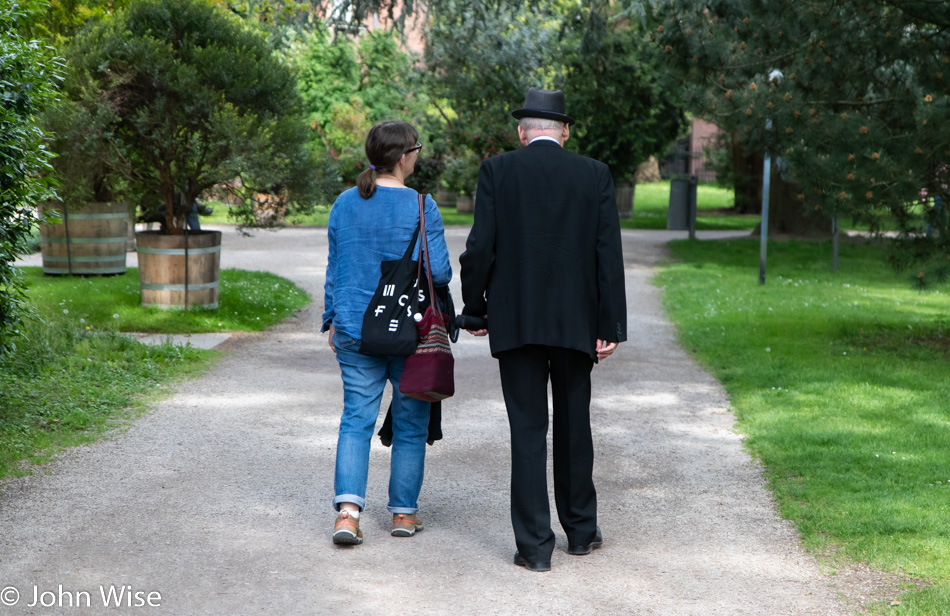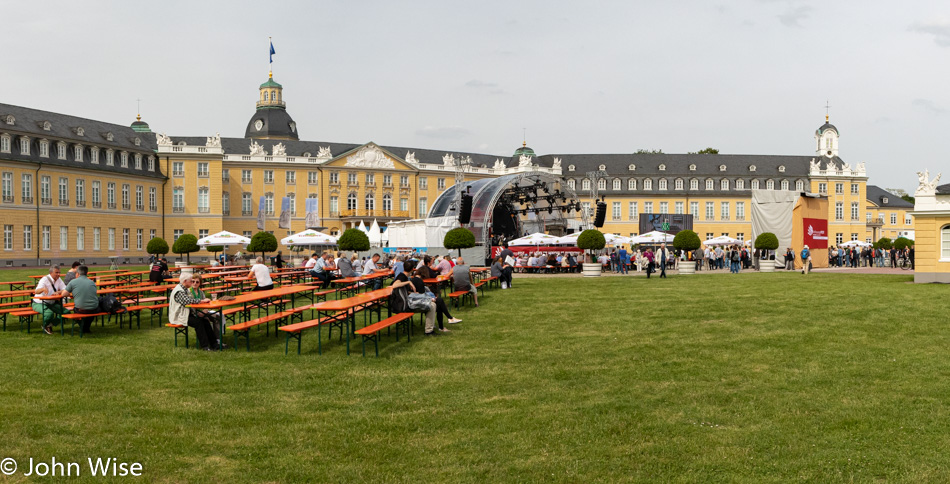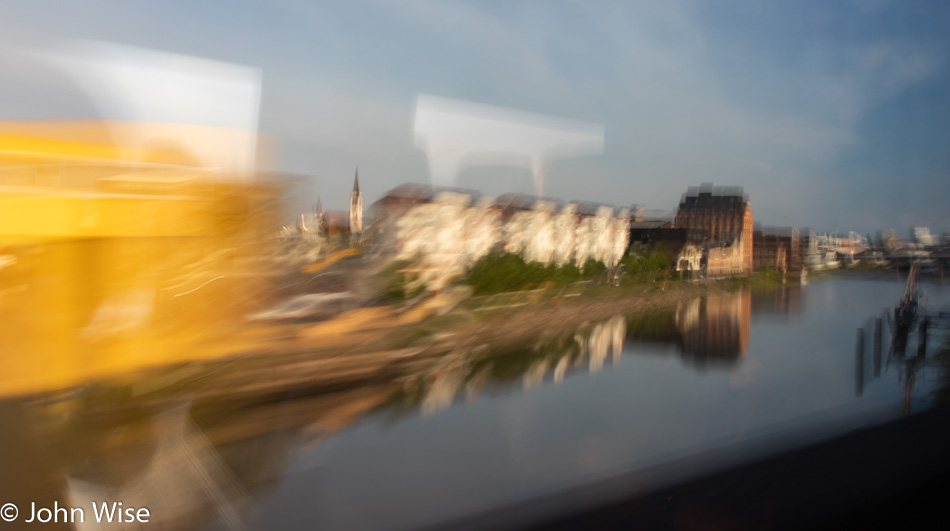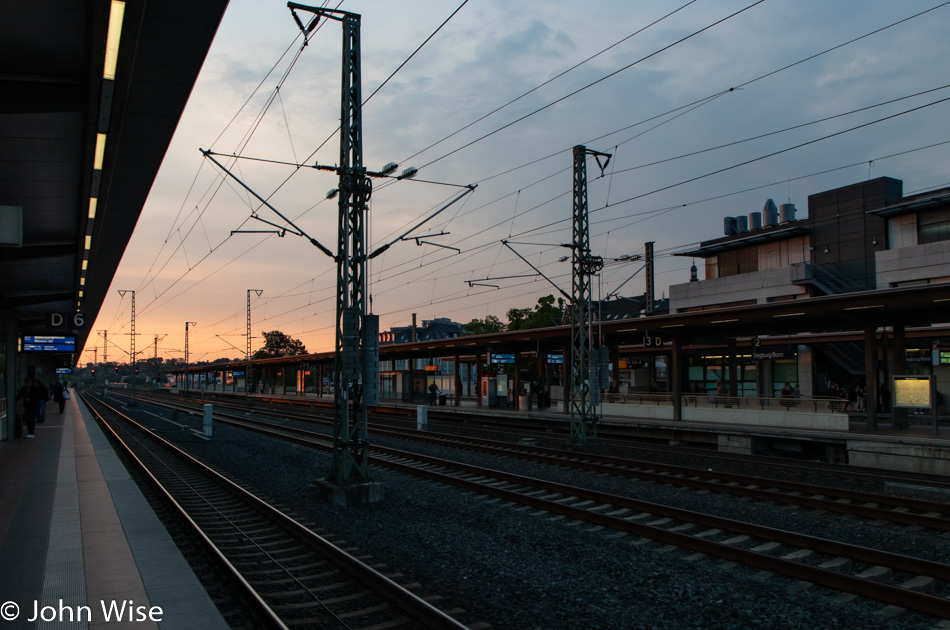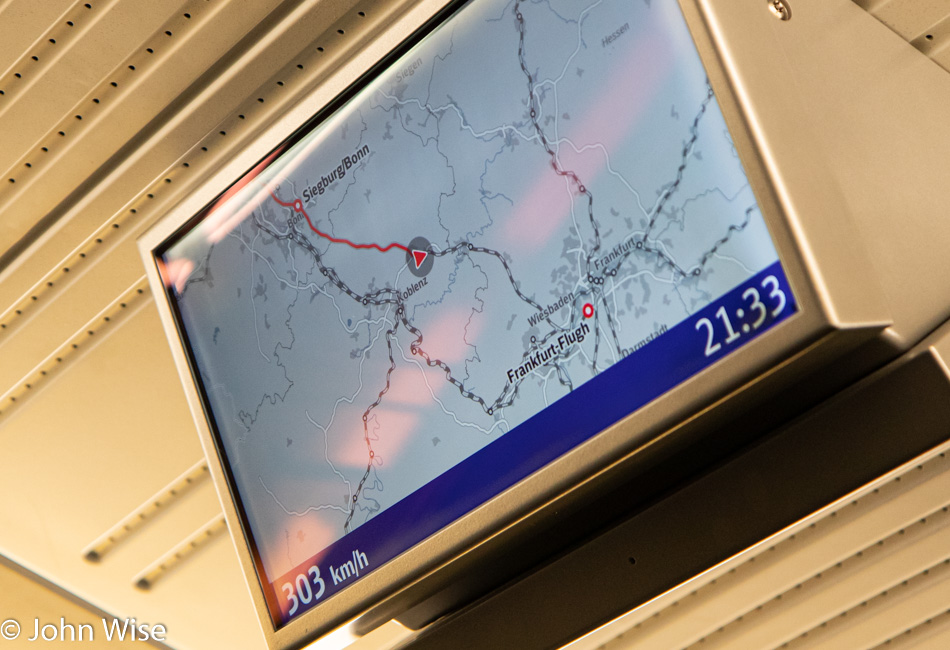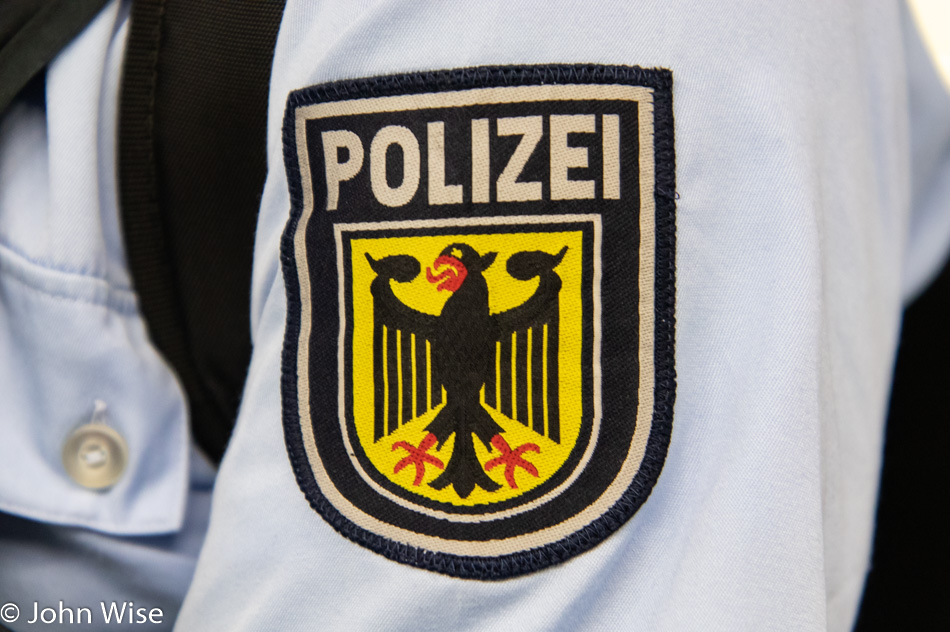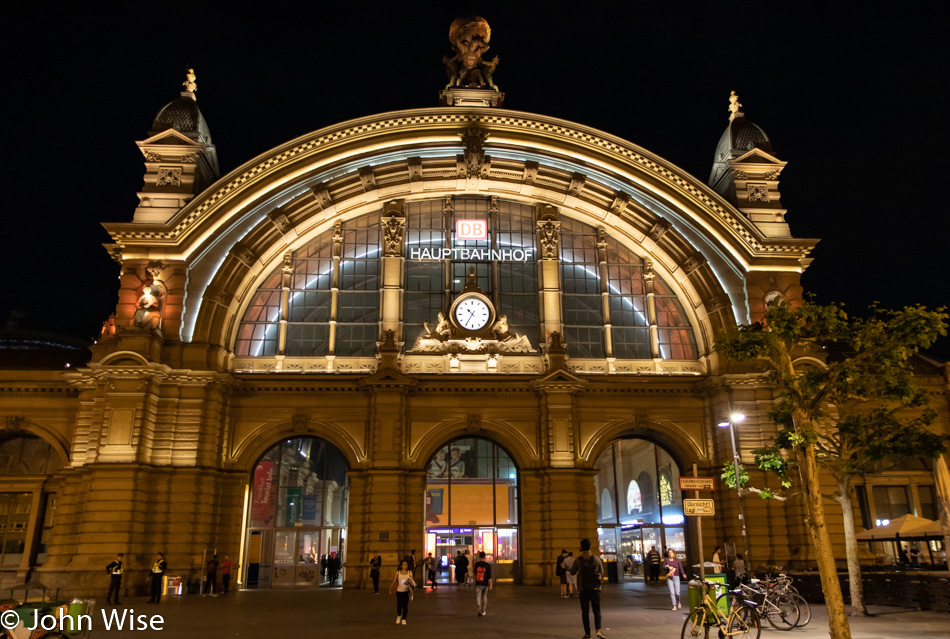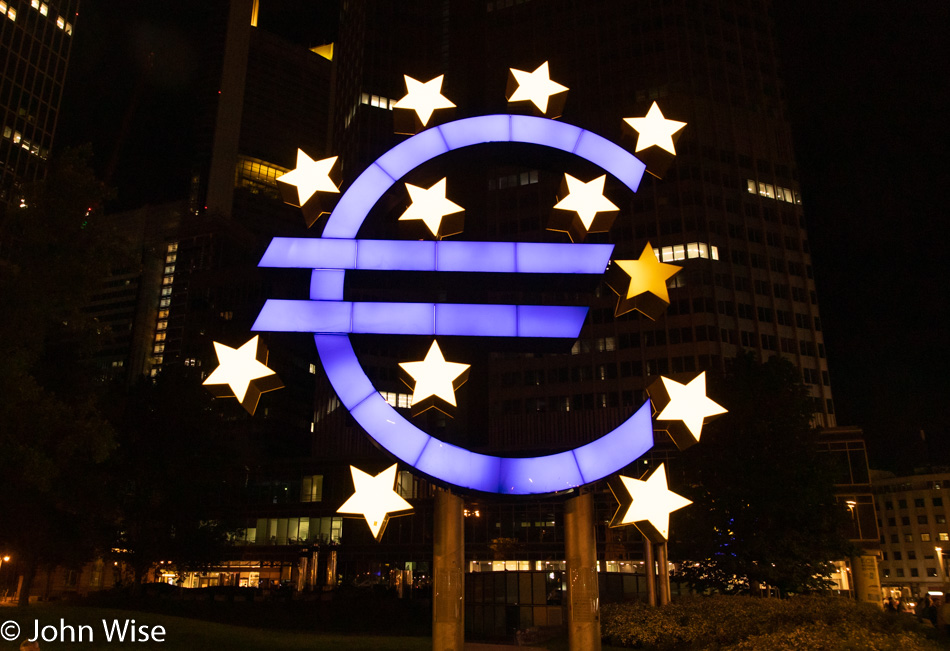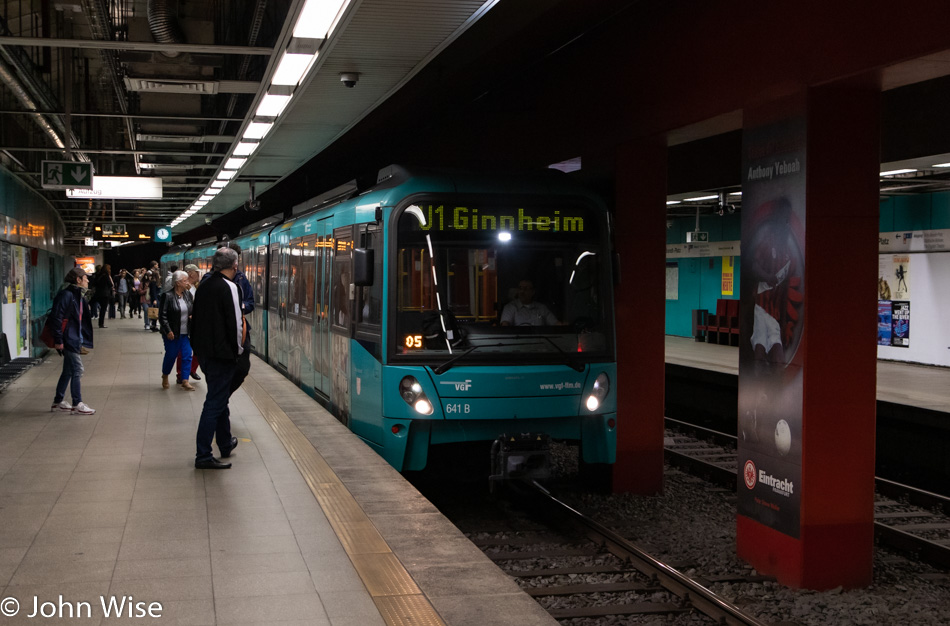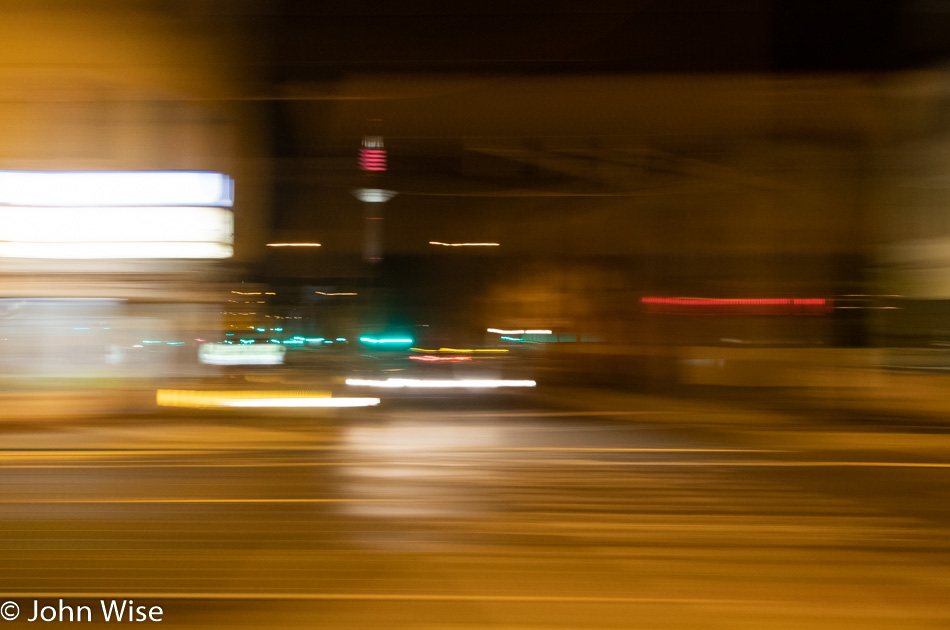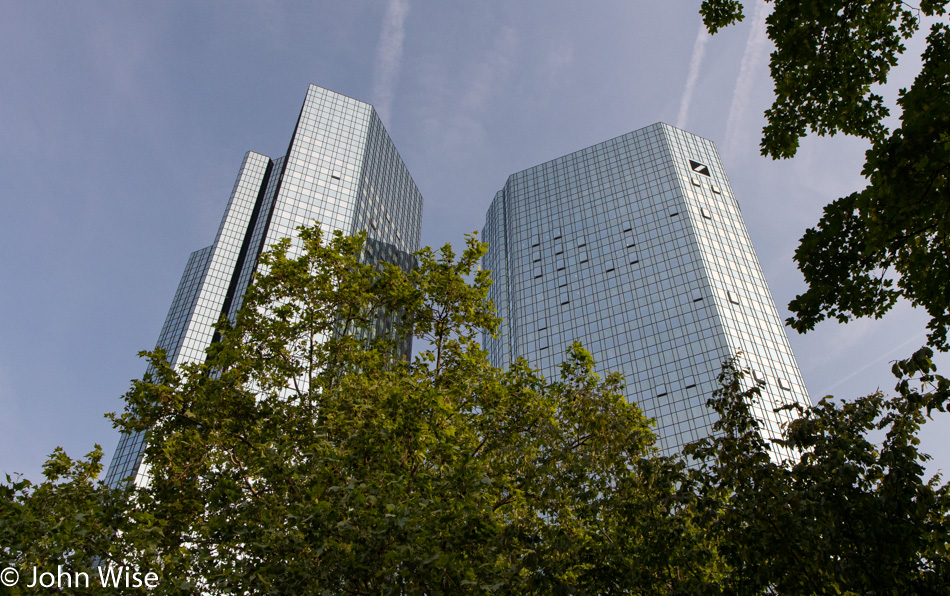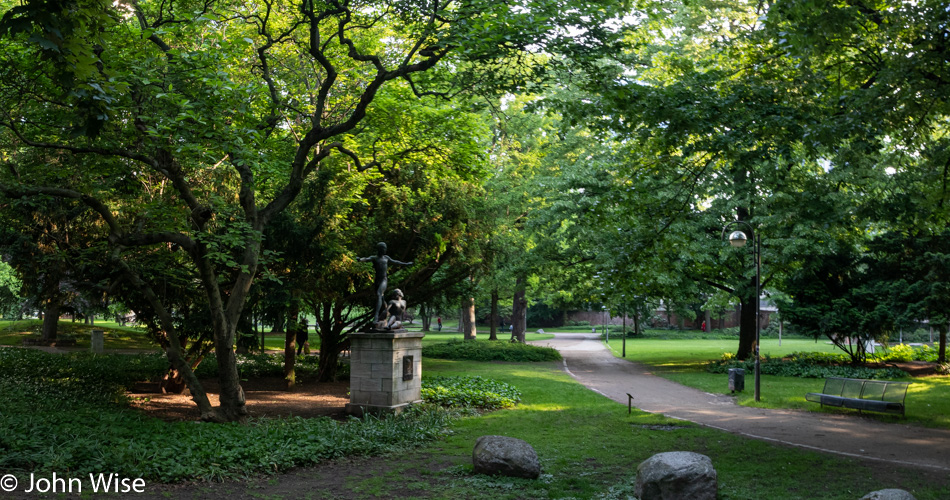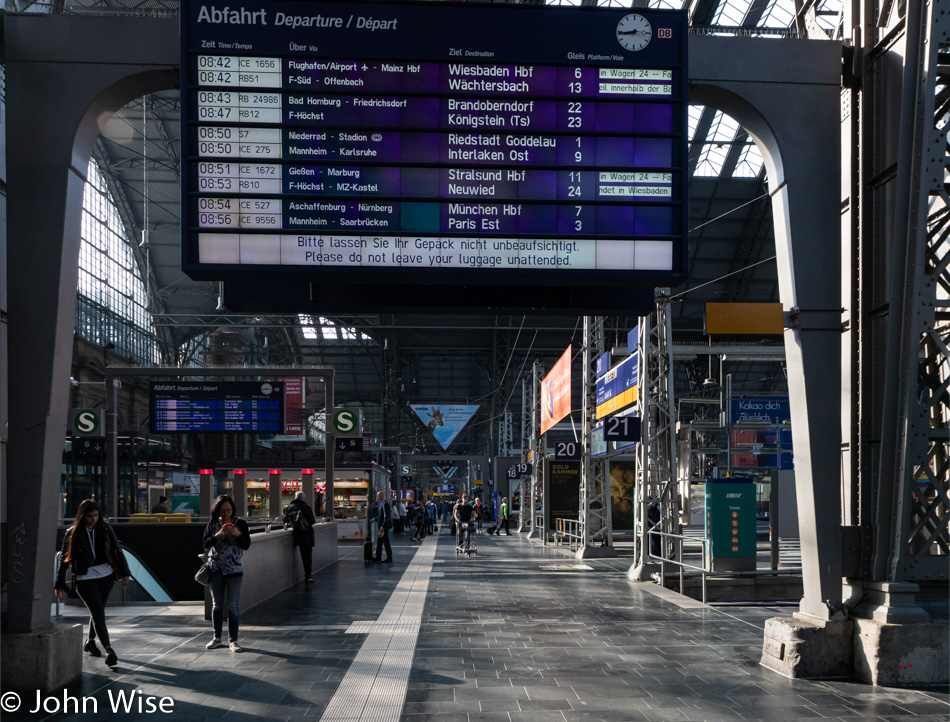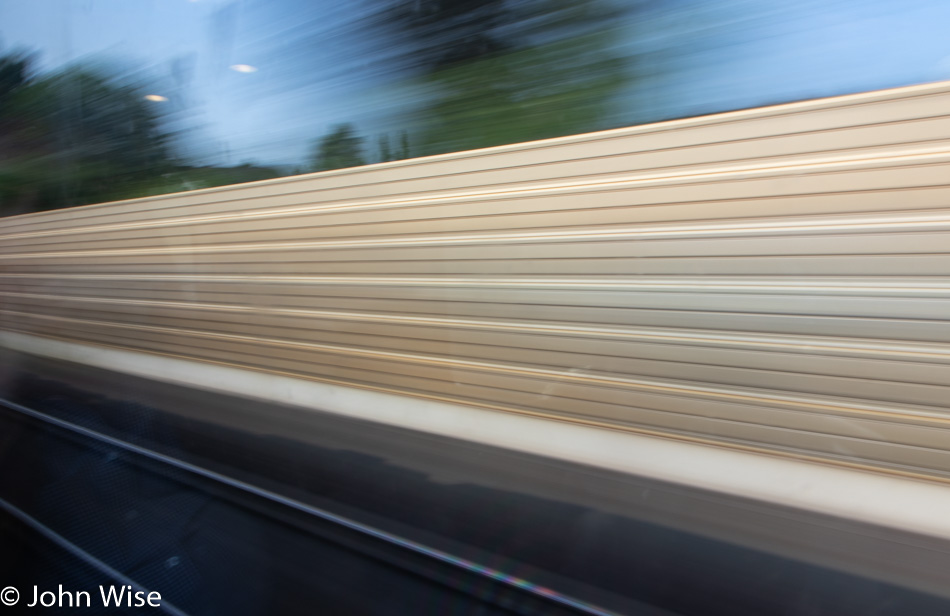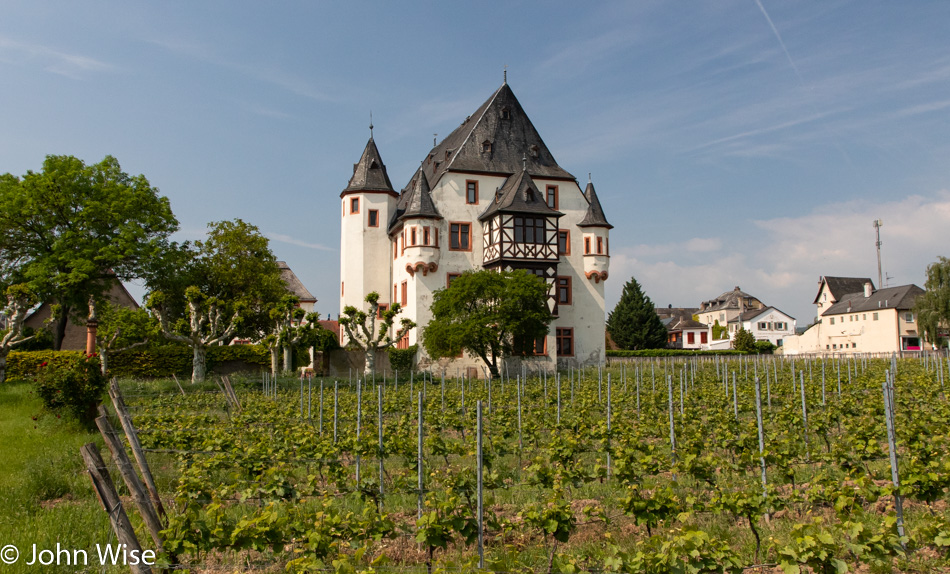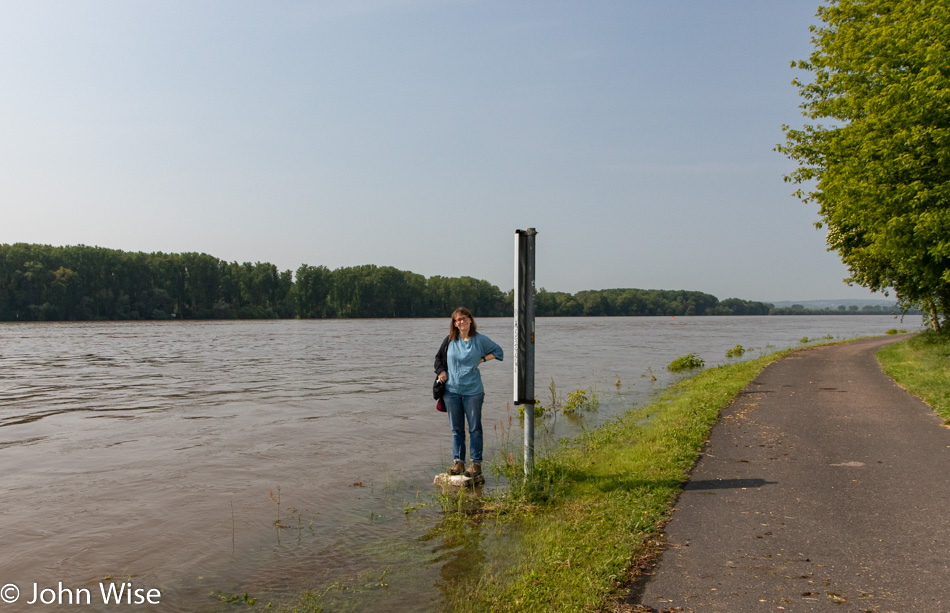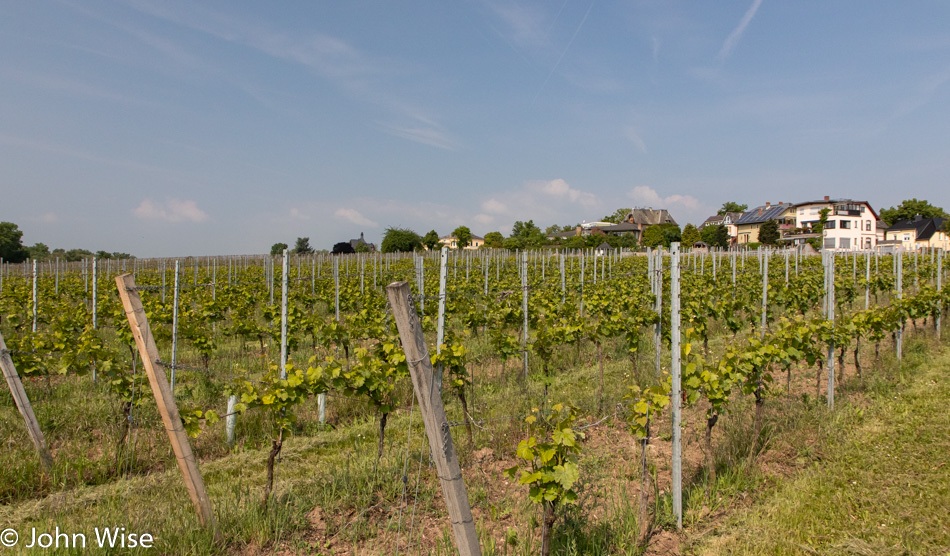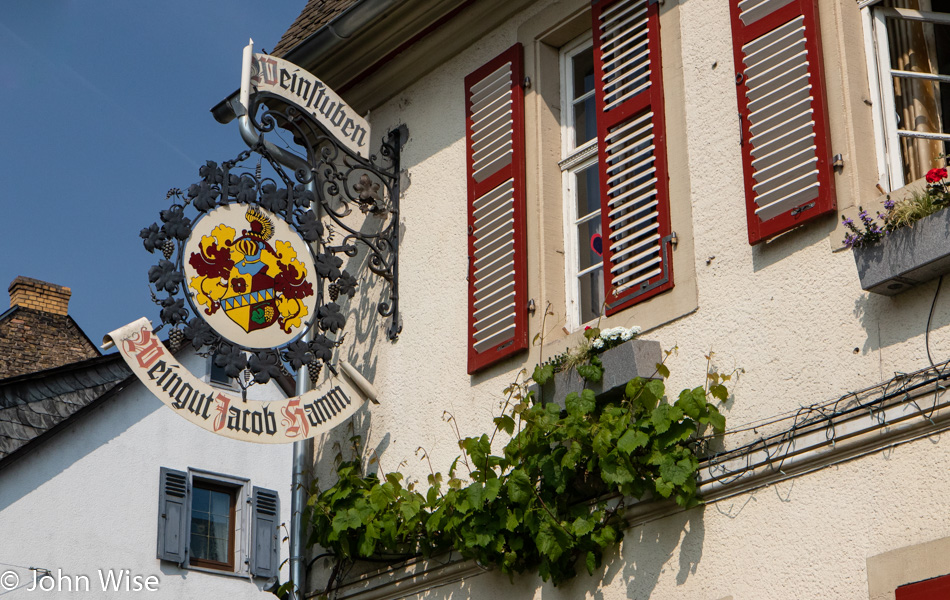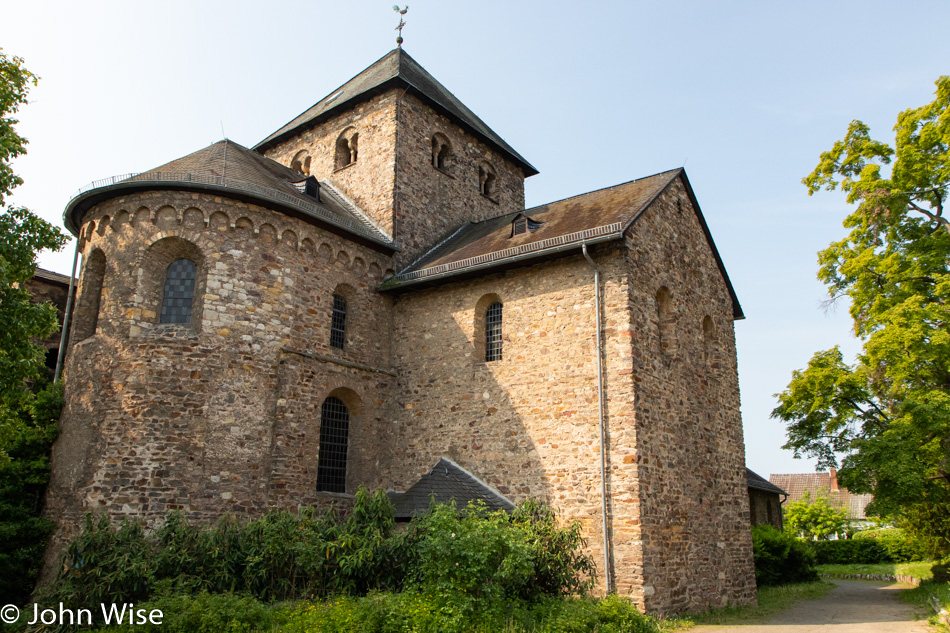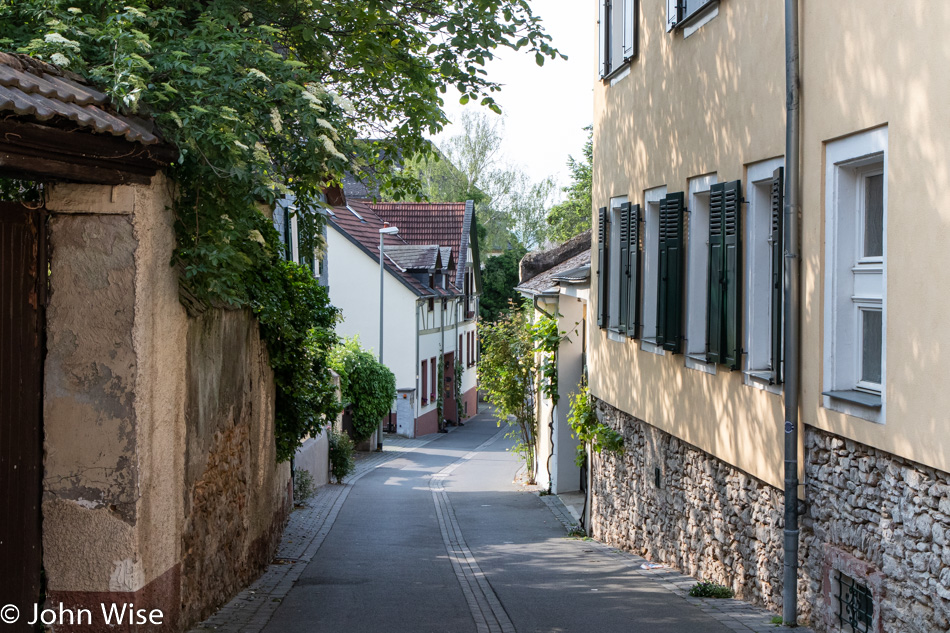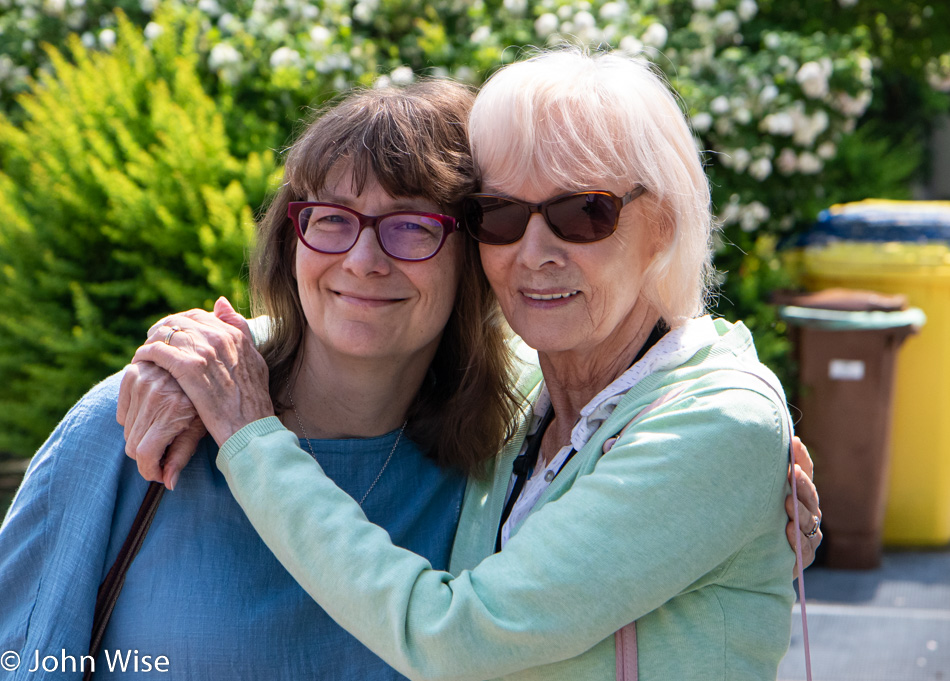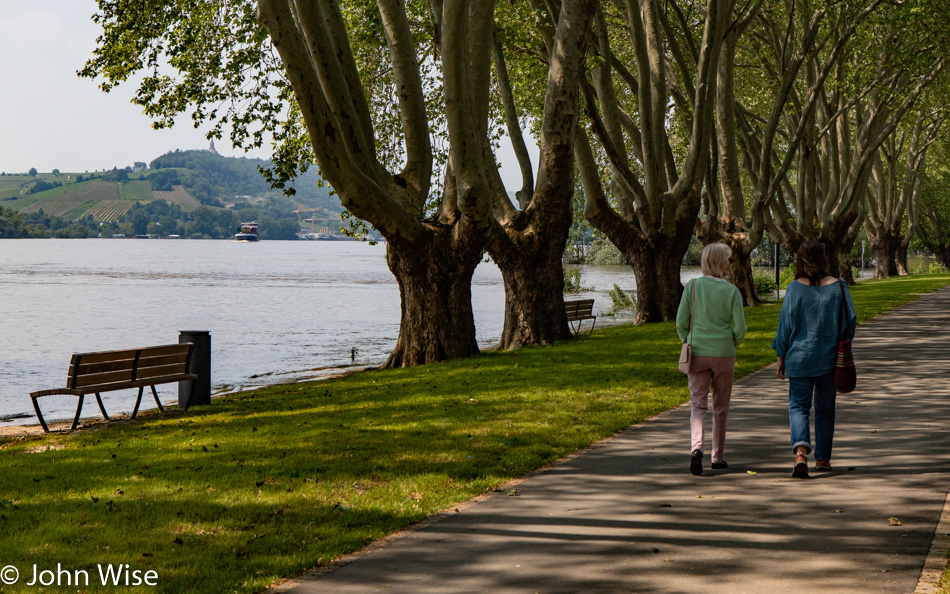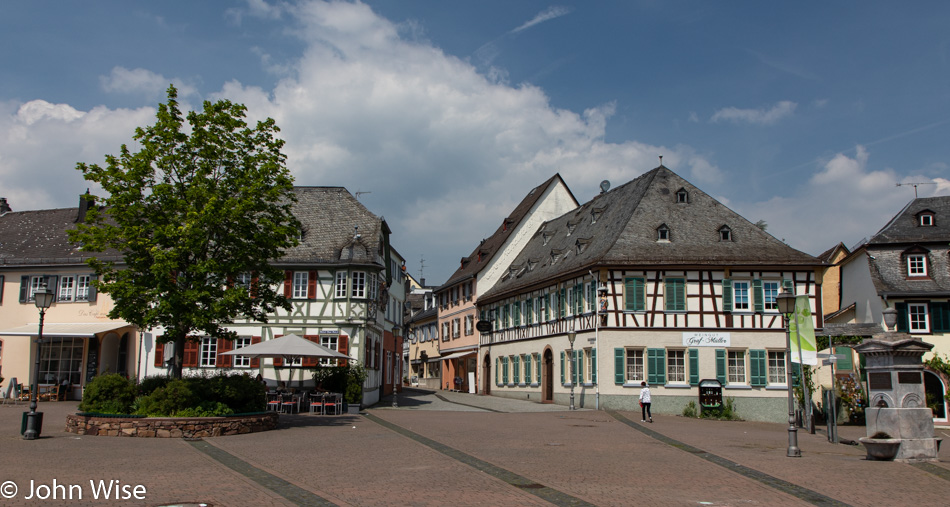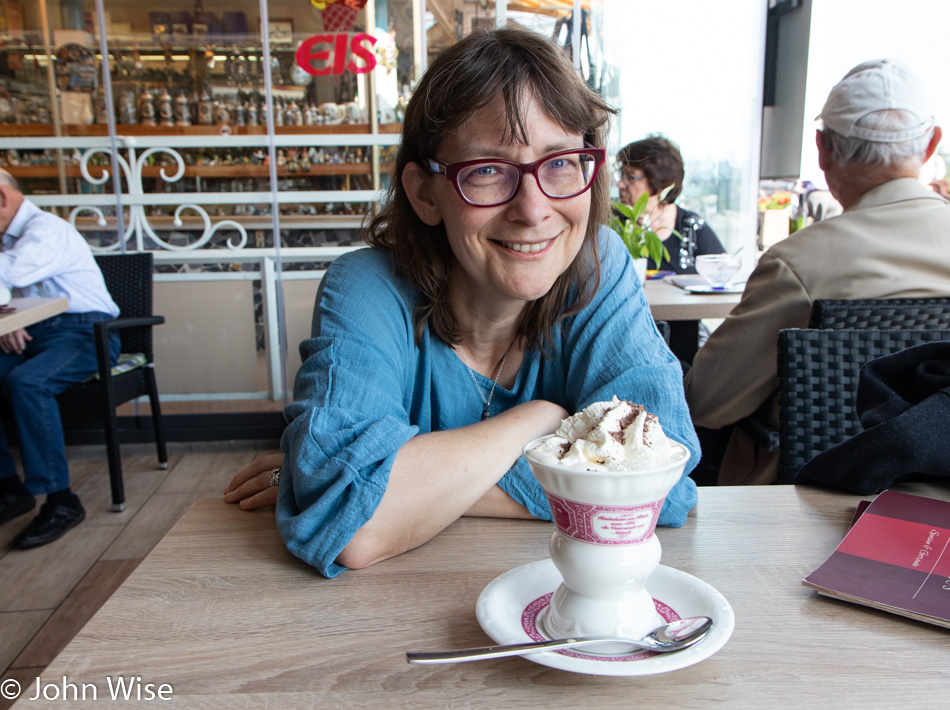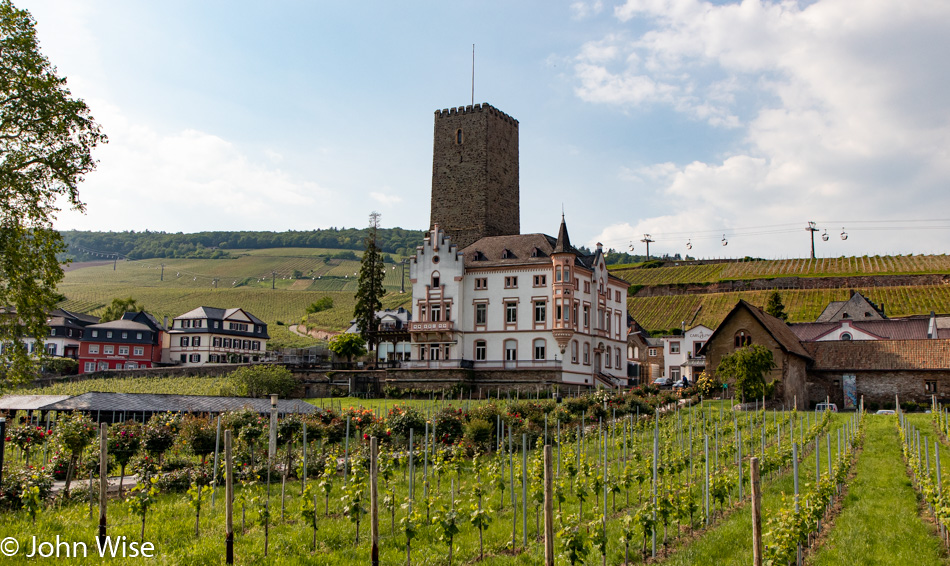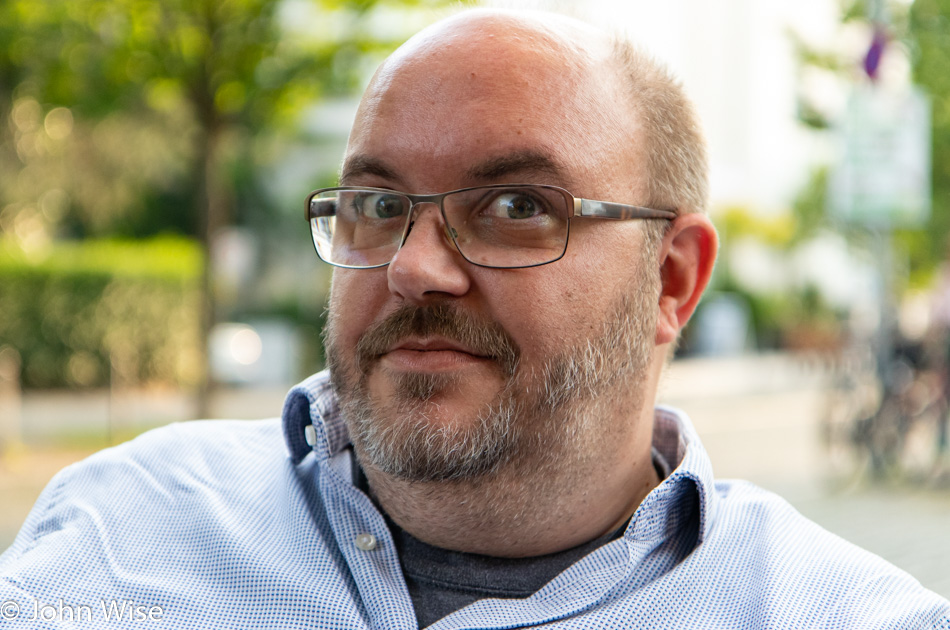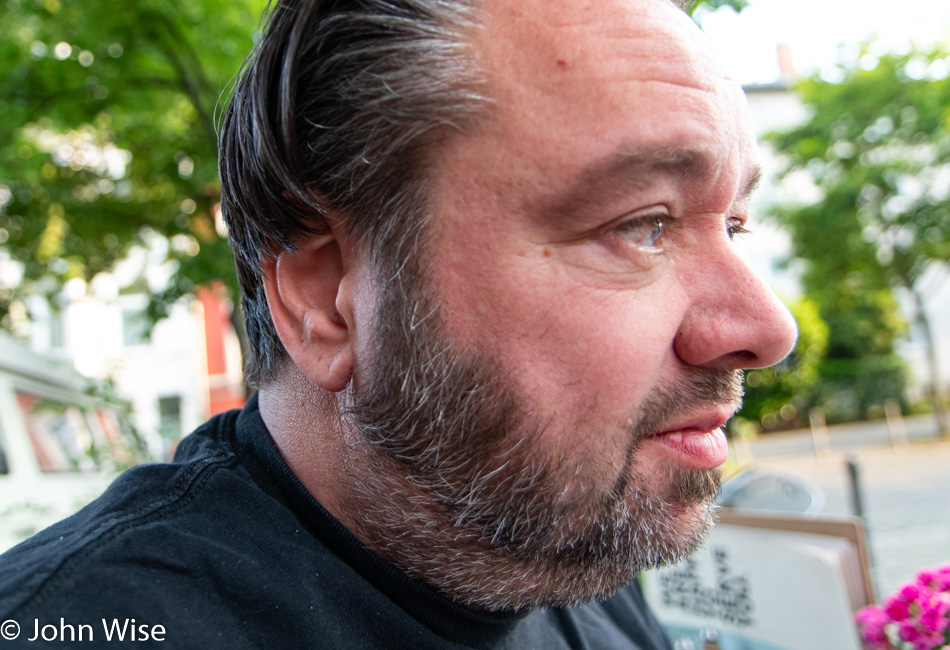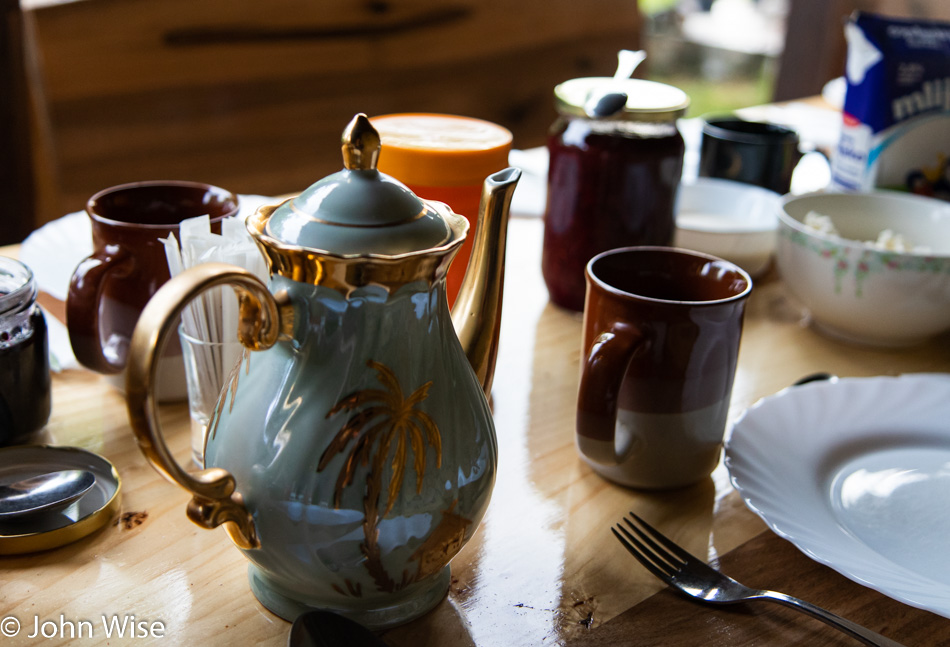
Just as I’d suspected last night, the family hosting us at their country homestead is out here with the wood fire going; the table is mostly set with homemade bread, jam, a couple of varieties of cheeses, smoked meats, and some strong Turkish coffee. It will be close to an hour before any of the other guests appear.

After saying good morning to the Jelaš family and learning that somehow these elderflowers that were just picked from some nearby trees were going to be part of breakfast, I took a walk around the property. From the kitchen, Croatian music played quietly while the birds sang their own morning songs. A light wind rustled the trees, and I got a close-up view of the flowers among the shrubbery. For a brief moment, I was able to find a sense of what a more typical day alone out on this hilltop might be like if this was the place I called home.

Elderflower pancakes are a new treat to me. Never in my 56 years have I eaten a breakfast that included fresh cuttings from a nearby tree that were simply dipped into batter and fried with the branch still attached to use as a handle when eating the delicate blossoms. Gluttony being my middle name, I likely ate half a dozen of these before I could finally refuse Ivka’s pushing more of them on me. Ivka is Juraj’s wife and is pictured below in the last photo of this entry.
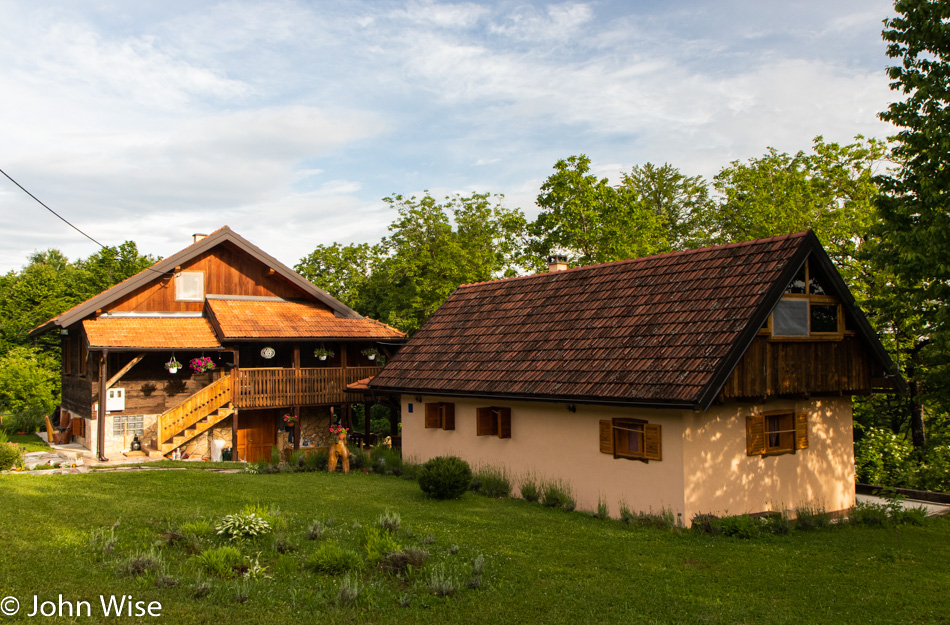
The building with the outside stairs is the main house, and under a gallery on the right side of it is the dining area with a view of the trees and surrounding countryside. The building on the right is the house Caroline and I stayed in, specifically the upstairs room closest to the camera.
Shortly we’ll be leaving the homestead for the day, though we’ll return later this afternoon as we have two nights out here. Our destination is the Mrežnica River Canyon for some kayaking: our first paddling experience of the trip.
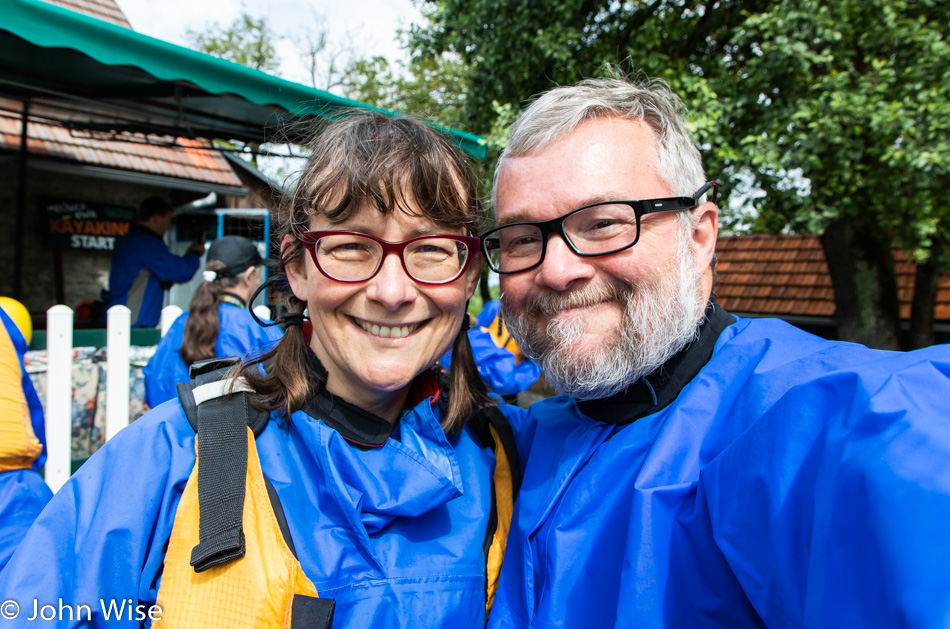
Suited up in wet suits and splash jackets, we are close to putting in on the river. Our kayaks are sit-on-top two-person affairs, and while Caroline said she’d never ride in a kayak, a.k.a. divorce boat with me ever again, that is exactly what she’s about to do.
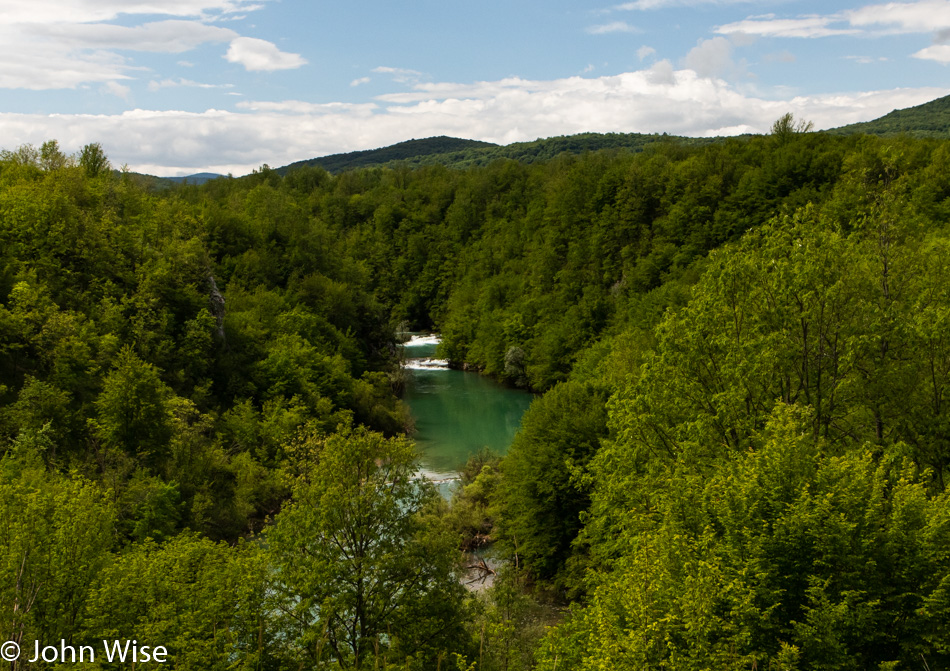
I can’t tell you that I’m not approaching panic as I look down and face the river below. If only I didn’t have an inherent fear of water, this would likely be a lot easier, but being pushed off the back of a boat into Lake Erie when I was about four years old and then being caught in a riptide only a few years later in California made some of my early encounters with the force and nature of water one fraught with anxiety.
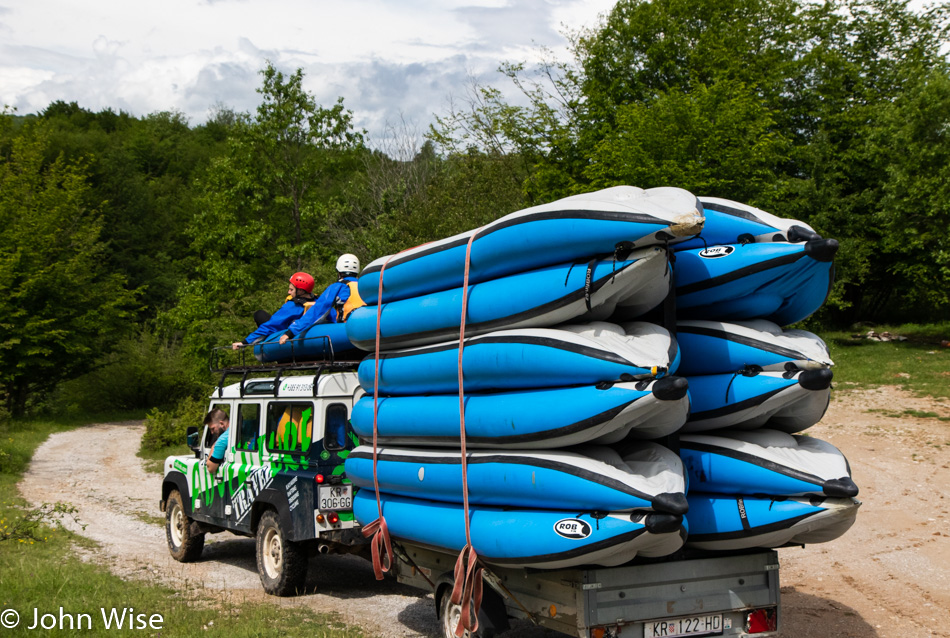
The first briefing of the morning, and we’re learning about the type of travertine waterfalls that we’ll be navigating. I’m fairly certain that Caroline is as nervous as I am, but we are surrounded by guides, have our personal flotation devices strapped on tightly, helmets on our noggins, and have been assured again and again that this is safe for beginners.
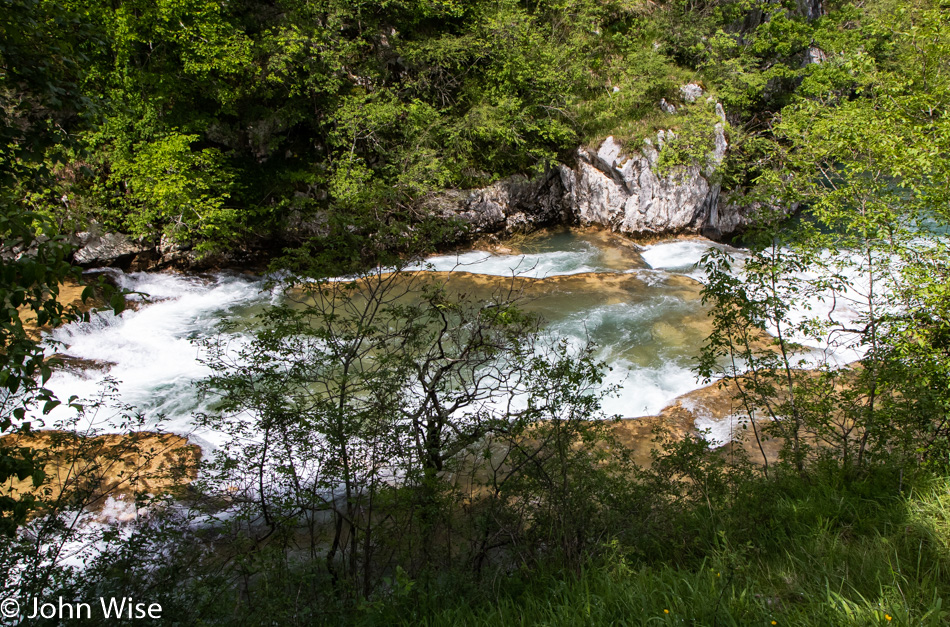
Down a hill, we carried our boats to a relatively calm pool where we practiced getting our bearings and reinforcing the skills to have our kayaks do what we’d like them to do. While not convinced I’d be graceful in my actions, I was determined to stay upright as we headed downstream, encountering a chute that was to send us over our first waterfall. The hope was that we’d still be upright after doing so, but things didn’t work out that way. We rolled out pretty quickly after entering the rapid/waterfall, but pretty quickly, we were right back in our kayak with the help of a guide who was standing in the waist-deep water just in case he had to help a passenger or two back into their kayak. Good thing we were right back in because we were soon flying over the next fall, where strangely enough, we remained out of the water and on top of our kayak.
I should probably mention at this time that our Croatian guides for this trip are Petar and Ivan (pronounced E-vahn, not Eye-van). These two guys seriously helped push our river skills into new territory today. Ivan’s patience in helping again and again by bringing my attention to correctly maneuvering our kayak was always on point. Caroline and I both consider ourselves beginners because although we’ve been out in the Gulf of Mexico, on the Straights of San Juan De Fuca, and a couple of other places, we’ve never been seriously coached in how to properly kayak, and so we’ve inadvertently mostly worked against each other.
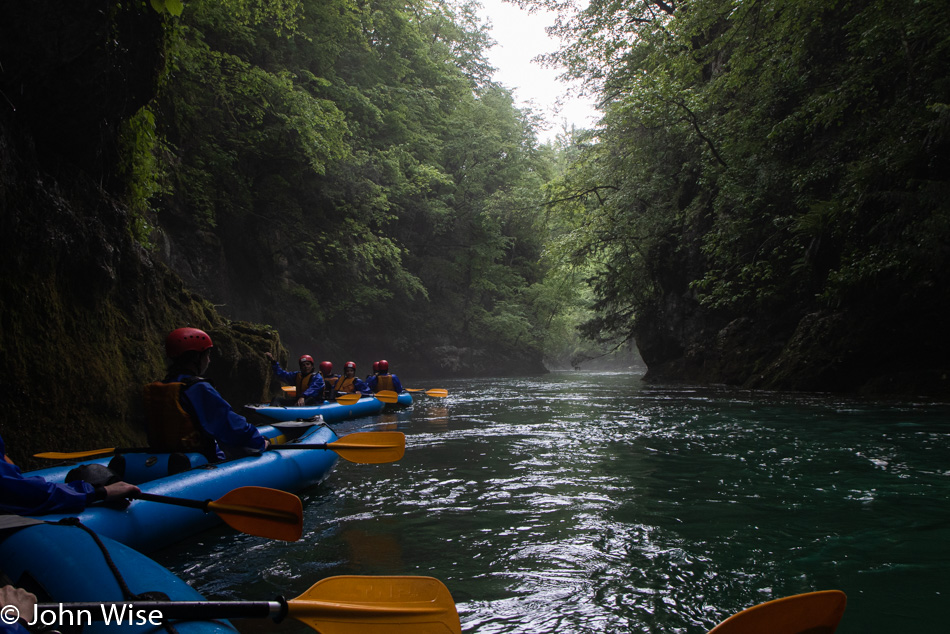
The river was running high today due to recent heavy rains. Even when we were out on the water, we got hammered by a hard downpour, but as it finished, a fine mist rose over the river in the canyon and added to the already tremendous beauty we were witnessing. It’s not just the river that is gorgeous either, but the deep greens of spring are painted over the forest and only add to the fascinating spectacle on display. Hands down, though, it is the travertine falls that are going to enchant anyone who visits here as they are struck in disbelief that they are actually in this place of the extraordinary.
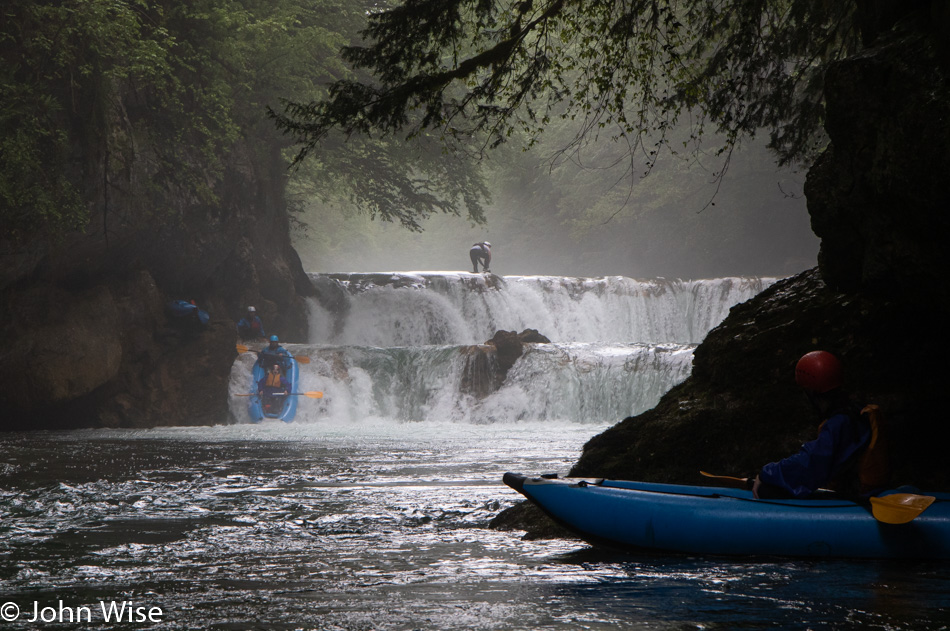
On one particularly difficult waterfall, our guides set up ropes and used carabiners, attaching them momentarily to our kayaks, allowing them to drain so they’d not be too heavy as we went over the final drop.
We now understand that we can figure out the direction of the kayak and stay upright, going over one to two-meter waterfalls boosting our confidence to great new heights. Petar and Ivan work for a company called Raftrek and were helped today by their coworkers named Marko, Dario, and Eugen, who not only helped us climb down a waterfall because we were too nervous to jump down a 7-meter (21-foot) cliff over the edge of a waterfall into a deep pool below but also helped by often jumping back into the hip-deep water rushing over the travertine edges in the middle of the river to help ensure we made the line we needed to for navigating the various rapids.
With the wet suits on we were well prepared to be comfortable on the cold water and in it. Our guide Eugen had an infectious enthusiasm that allowed him to ply the waters in nothing more than shorts and a t-shirt. This guy jumped from a travertine edge over the 7-meter tall waterfall into the center of the maelstrom below; he jumped out of kayaks with a backflip to get back in the water and, at the end of the trip, jumped off a bridge more than 10 meters over the river. This guy certainly relieved stress for some of us by demonstrating absolute comfort with any part of the river. The confidence of our well-skilled guides definitely lent loads of confidence to the rest of us who needed it.
Off the river and getting changed into dry clothes was no easy feat due to the intermittent rains that had us in a hurry to wrestle out of our clingy, wet suits in a rush to get warm. Once we were packed up and back at the Raftrek base camp, it was time for our picnic lunch, coffee for me and a beer for Caroline.
There’s no way to adequately convey in these post-adrenaline moments just how amazing this all was. What started in near panic ended with new confidence that only after kayaking down waterfalls can offer. This must surely be one of the most beautiful stretches of river in all of Europe, well at least today it is.
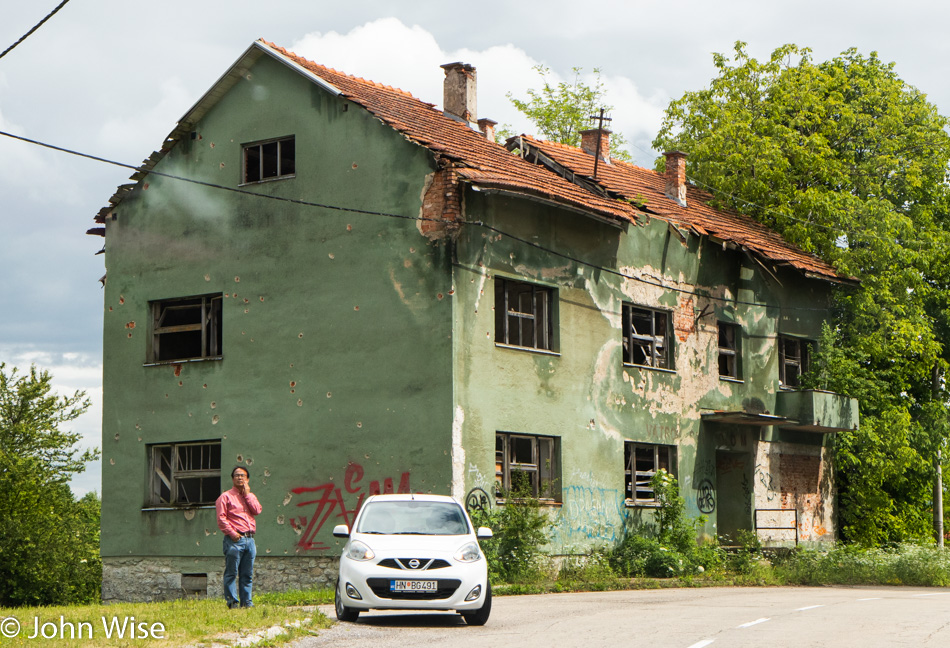
We’ve already seen this type of sight dozens of times on the local roads: a damaged house has been abandoned. The owners may have perished at the hands of the invading military, or maybe they left the country after the trauma of having their homes made unlivable due to the Balkans War of 1991 to 2001. There are signs of the conflict in every village we pass through, as bullet-riddled walls can be seen over and over again. The cost to repair the damage to the walls seems to be secondary to replacing windows and roofs in order to regain protection from the elements during winter or seasonal rains.
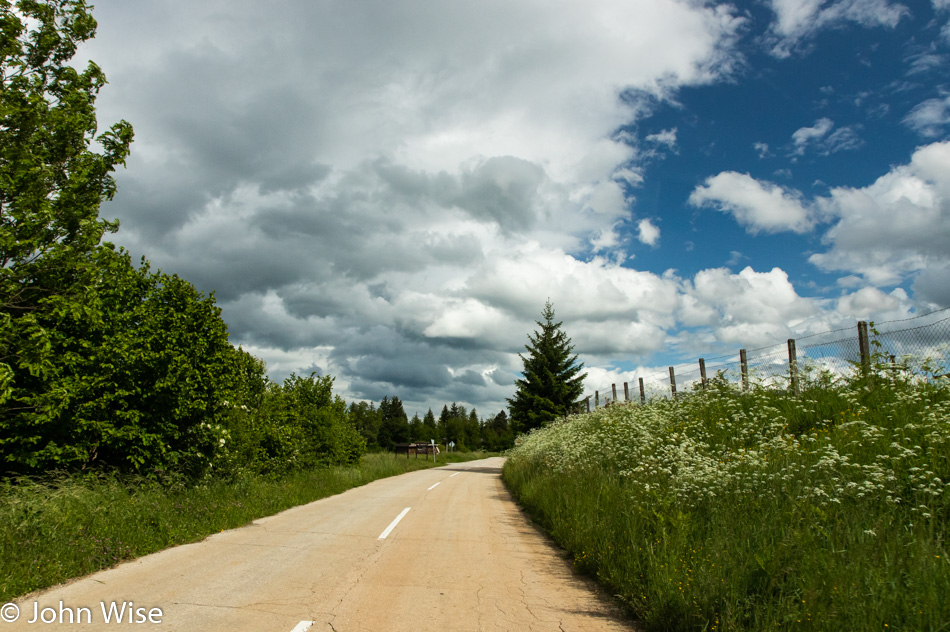
We could be in Wisconsin, Idaho, or Maine with these views. We could be in love under these skies. We could let these landscapes linger in our memories forever. We could return someday and fall in love with it all again.
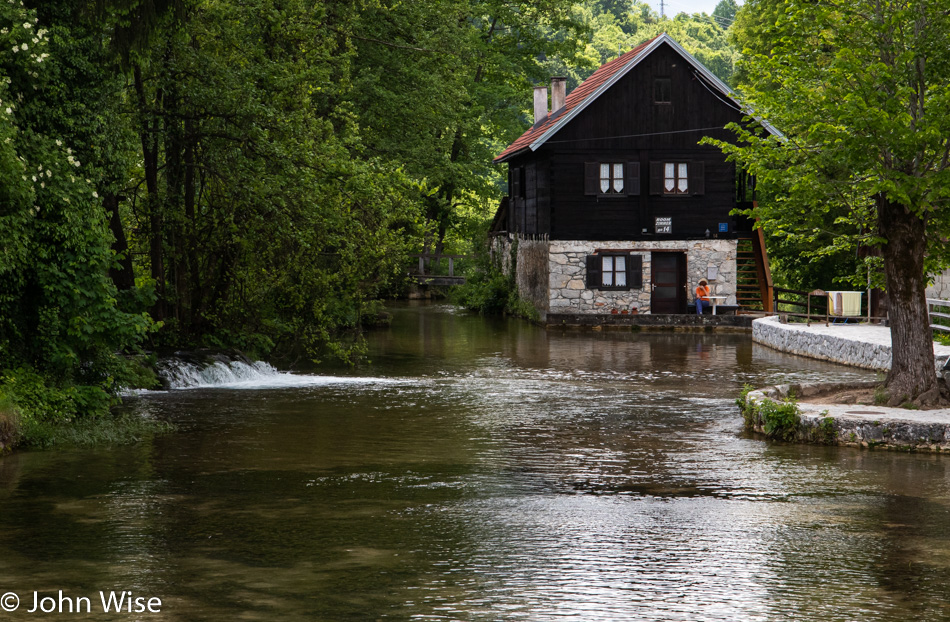
The next stop on today’s adventure is in the village of Slunj. This old mill town was built over an area of dozens of waterfalls and is obviously the influence of many a sci-fi film where one need not think long about the movies it inspired.
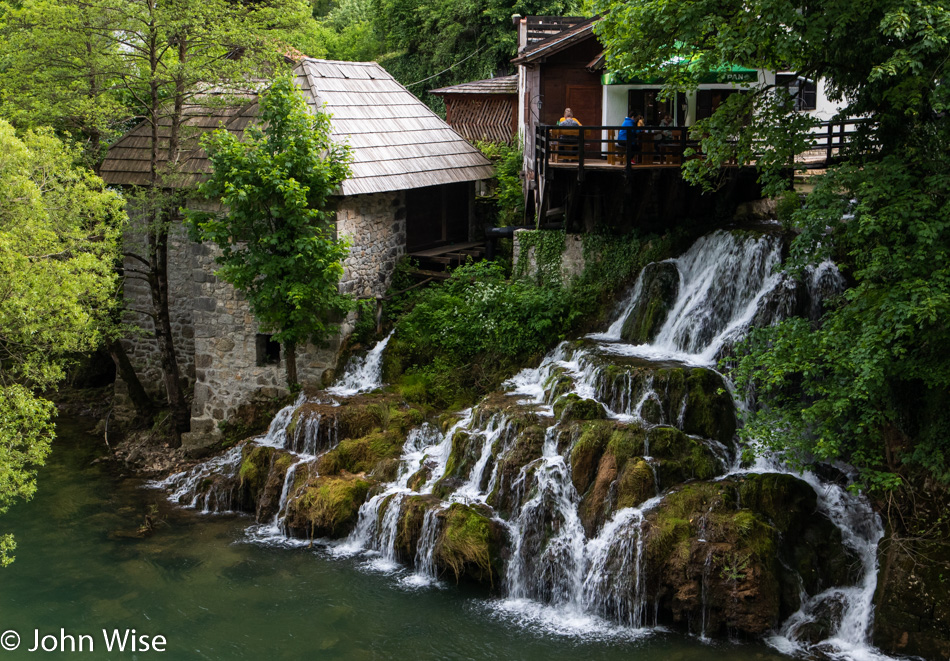
I found no way to do justice photographically to what I saw here. The breadth and scale of the place with intricate details defied capturing it for me with a single image that might share some of the character seen from the overlook we walked along.
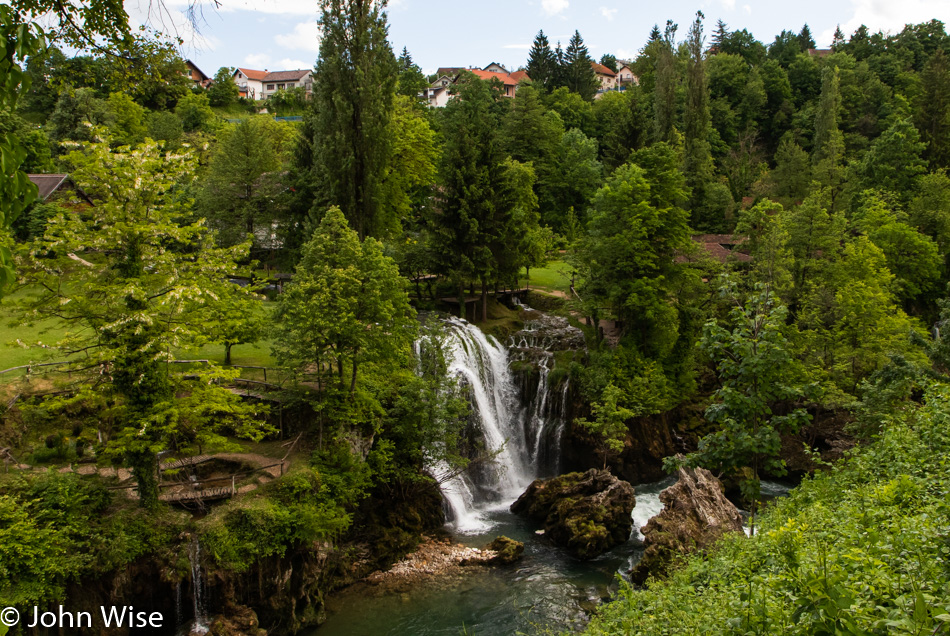
While writing this part of the blog, I went over to Google to search for the images I was certain I’d find, but I quickly learned that others are having the same problem in finding the perfect angle to share a fraction of what will greet your senses as you walk around the old town center.
I’d be willing to go so far as to say that a visit to Croatia would be incomplete without a stop here. It is that important for your own eyes and ears to have gazed upon the spectacle of so much water flowing through and under this small patch of land that people call home.
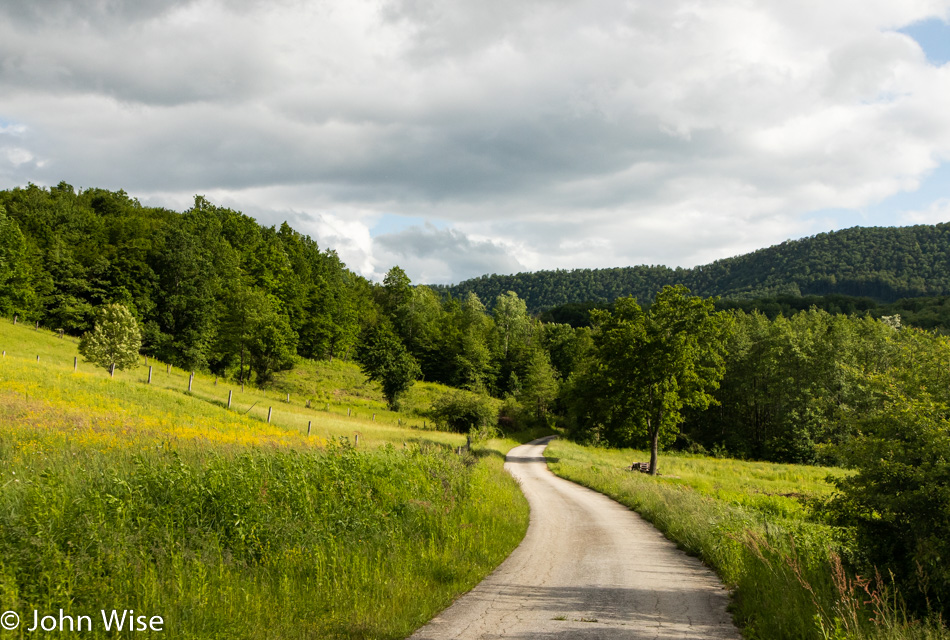
It’s only about 5:00 when we arrive back at the Jelaš homestead. Being early and having passed a bunch of sheep, Caroline and I took a walk back down the road to check them out.

The sheep were being moved over to another pasture as their dogs were herding them to a different hillside and started barking wildly at us as we got too close for their liking.

These sheep are not supplying their coats to any fiber artists but are instead meant for dinner tables.
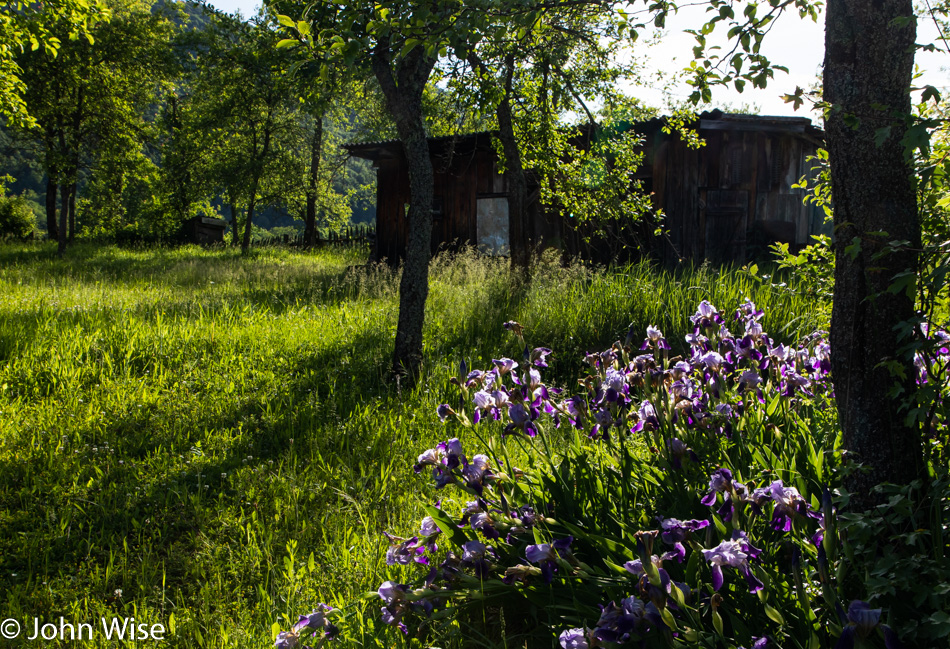
Not two seconds after turning around, a white van came racing around the corner; it was our host Juraj, also called “šef” or boss by our guides Petar and Ivan. He tried telling us something that was being lost in translation, so he motioned us to join him in the vehicle, and we hopped in. We backed down the narrow road to a steep grassy incline where he was able to turn around before heading down it and around the corner to the thing he was trying to tell us about.
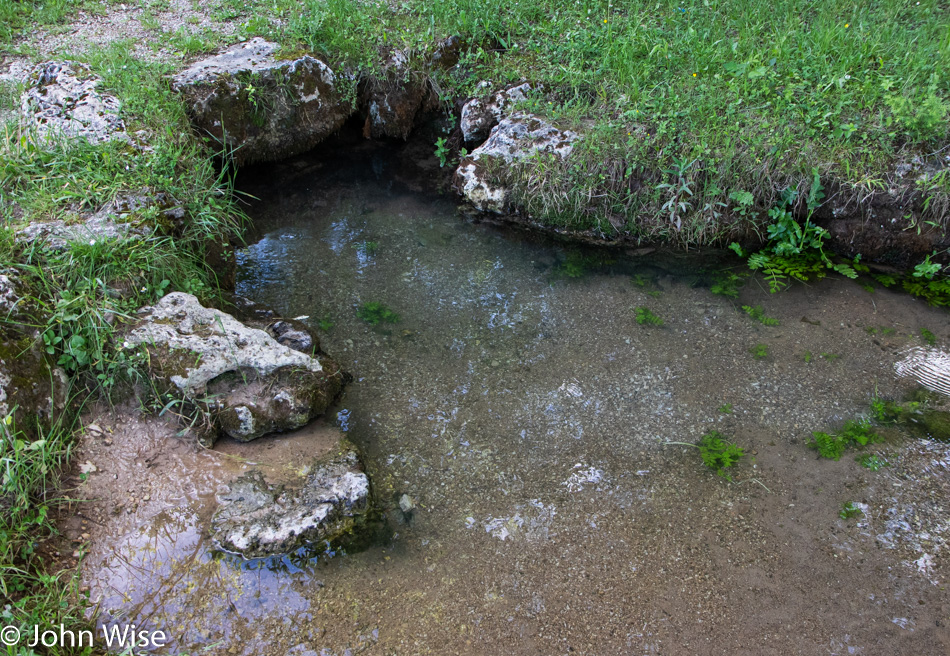
We were at an “Izvor,” or spring, where freshwater was trickling out of a seep. Gesturing, he let us know that the water was safe to drink, and after we sampled it, he offered us a large plastic bottle to fill, and off the three of us went on another adventure.
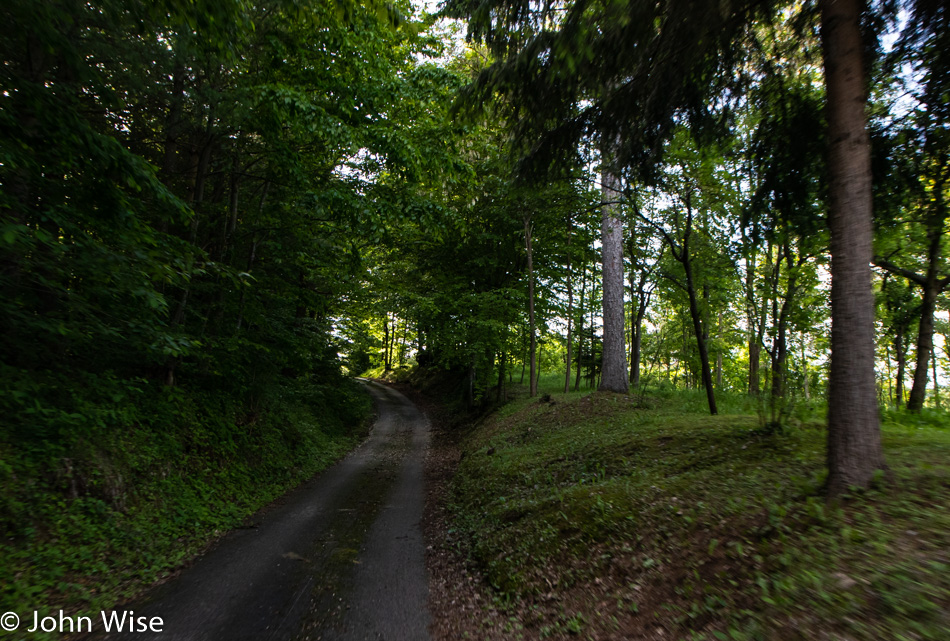
The road narrows, and we speed along with the familiarity of someone who’s driven this road so many times before that it’s mapped into the back of his mind and is now traveled by instinct.
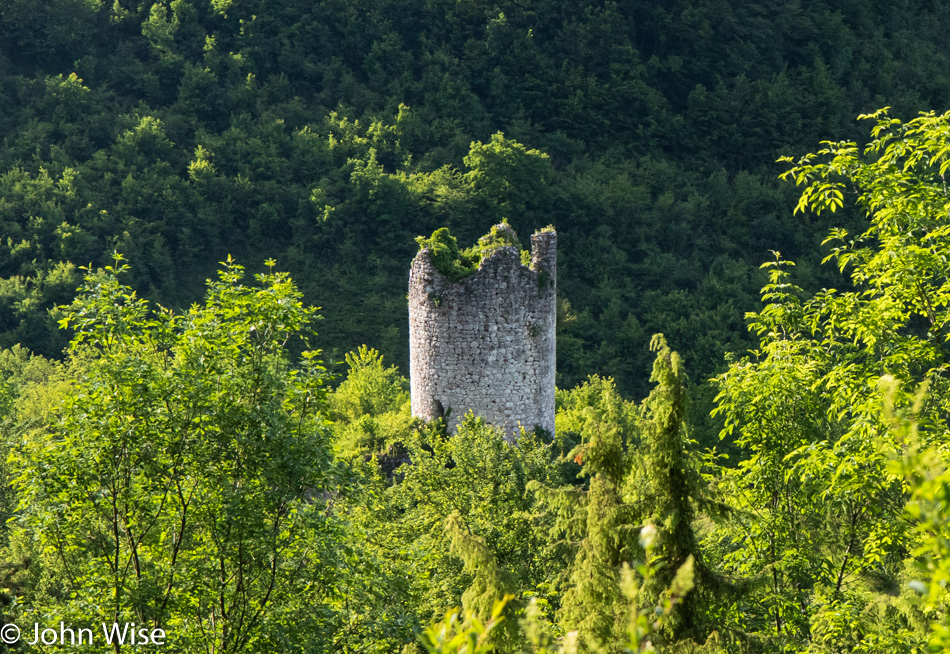
Can the road get narrower? Yes, and we are now on it listening to Radio Velkaton deep in the countryside of Croatia. Further into the woods, we drove, not able to share a word or idea of where we might be going. When we finally pulled over at a scenic overlook, Juraj pointed to the center of the landscape, drawing our attention to a tower ruin called Sokolac.
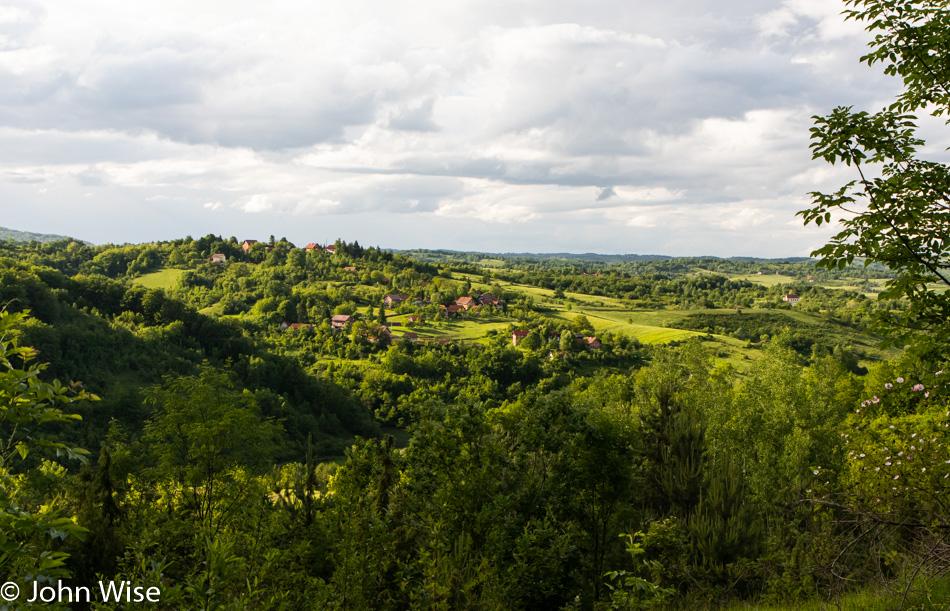
This is not where tourists go, this is where travelers arrive knowing that they are seeing a rare sight compared to those who cannot leave their trophy collecting. We do not see Saint Mark’s Basilica in the distance or snow-capped mountains of the Himalayas rising to the heavens; we are merely offered a glimpse across time into the heart of rural Europe with a rare opportunity to simply see and experience an ordinary moment. It’s priceless.
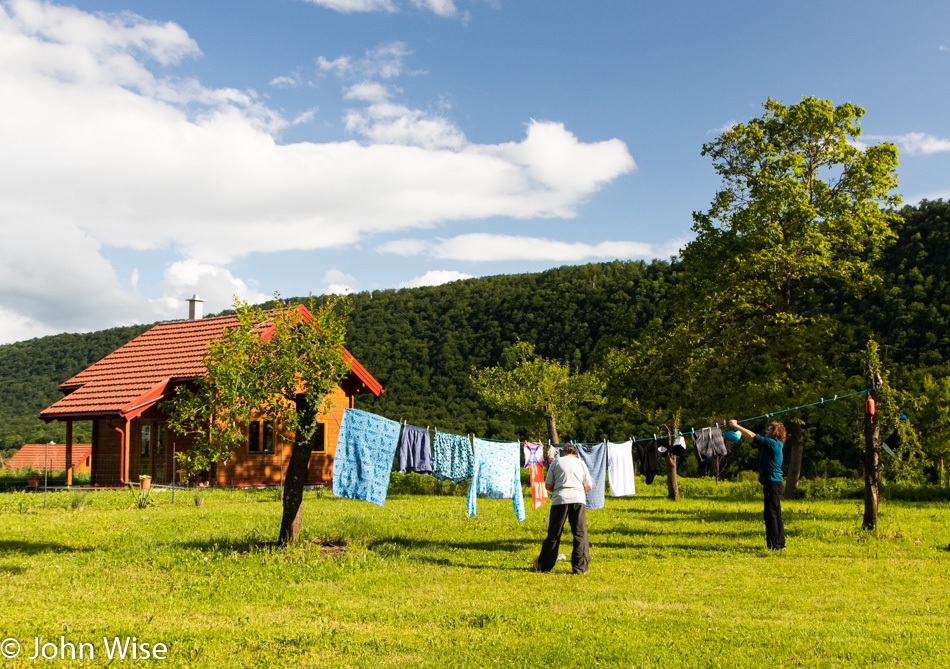
Our fellow rafters are either busy tending to the drying of their wet river clothes, are showering, or are off napping. I’m off to visit with Ivka to see if I might be able to learn a thing or two about Croatian cooking.
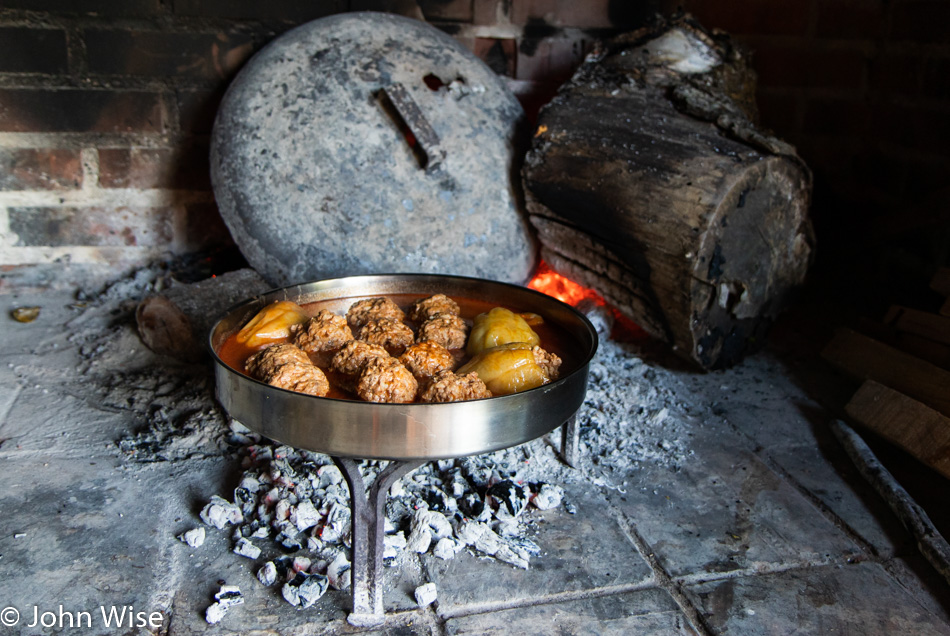
Ivka and her helper friend are busy in the outdoor kitchen getting ready to finish the final baking of the stuffed peppers we’ll be having later. The bake will happen “Under the Bell.” In Croatian, this is known as Ispod čripnje, and should you be interested and find yourself in Croatia, it turns out that a group in Zadar is organizing cooking classes and wine tastings in the area that focus on learning about this popular method of cooking in the Balkans. They are called Truly Dalmatia, and maybe one day, we’ll take them up on their offer to teach us more about cooking Under the Bell.
The weather is bringing back the overcast skies while dinner is nearing completion. Our stuffed peppers are being served with mashed potatoes and homemade bread.

Ivka Jelaš is the wife of Juraj Jelaš, who came to me and, through Ivan, let me know that should Caroline and I ever come back to Croatia, she would like us to be their guests. How much more touching someone could have been at that moment, I cannot say. If I thought their generosity reached a limit that night, I would have been wrong, as after the majority of guests went to sleep, Ivka brought out a loaf of still-hot soda bread. With a large block of butter, Juraj and I put a pretty good dent into that loaf.
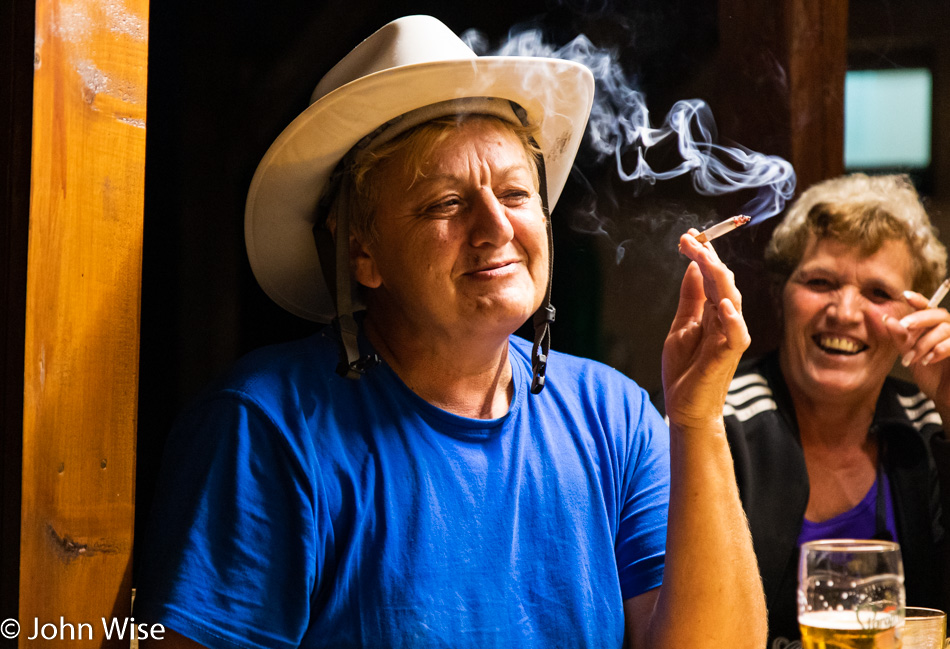
Here we are at the best time of day again when almost everyone else has gone to bed, and now it’s just Juraj, Ivka (wearing the cowboy helmet – it’s Cliff’s custom-made boating helmet!), Petar, Mira (the woman behind Ivka), and Cliff sitting at the dining table drinking and smoking late into the night.
I don’t know how the conversation came up, but we fairly quickly got to Jebi Se (Croatian for “fuck you”). It was the very first thing I said to Ivan upon meeting him at dinner on the night of our orientation meeting. I explained to him that someone once told me it was a common greeting in Croatia, his eyes looking at me in disbelief were perfect. Now we’re all laughing about it and how curse words are always people’s entry into another language.
The wine is flowing as the radio serenades us with accordion music, and the fire burns strong with the new log Juraj just added. Listening to the mostly Croatian spoken around the table, there are occasional breaks used for translating the important bits. For these moments, we are outside of time, having an experience that feels like we are with family on a Balkans adventure that cannot be bought.
A step out into the yard allows for a more focused listen to the crickets, the trill of the frogs, and a few drops of rain that are falling. Back at the table, I learn to say no shit, “ne seri,” or as kids say, “ne kakaj” for the slightly more polite “no kaka.”
Ivan relates his two-hour wait for Caroline and me at the airport, holding the sign from Wantok that escaped our view. He had seen us but decided that these happy hippy people, who moved like they knew what they were doing, couldn’t be the people he was looking for, so he just kept waiting until we reached the hotel and word got back to him. I think he’s enjoying himself just a bit too much by holding our feet to the fire for “blowing him off.”
Caroline and I called it quits shortly after midnight and did our best to quietly head upstairs while the two other couples in our building hopefully remained sound asleep, enjoying their slumber.
